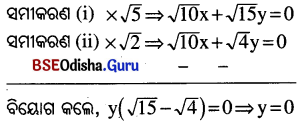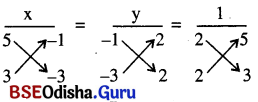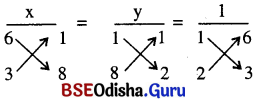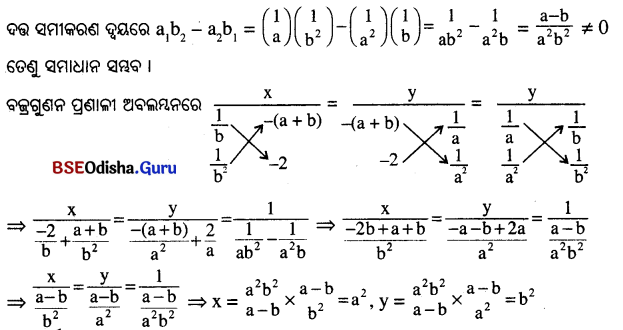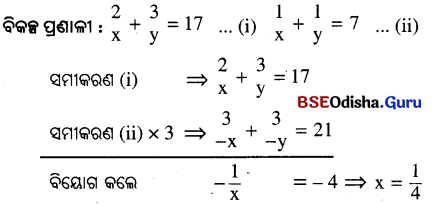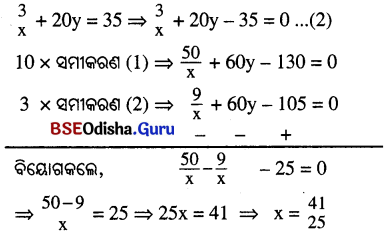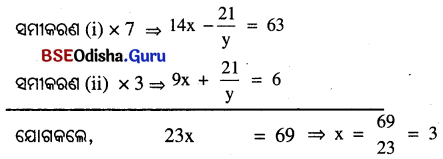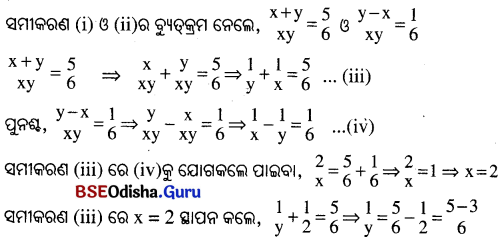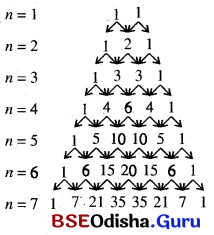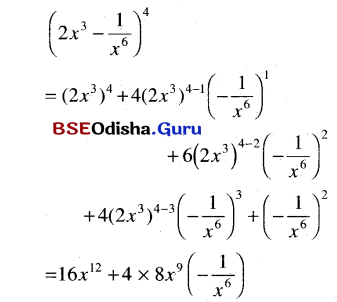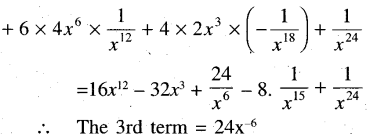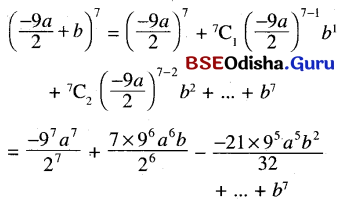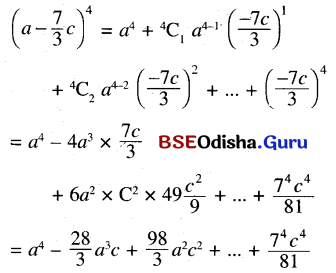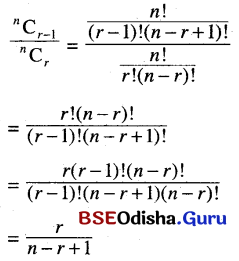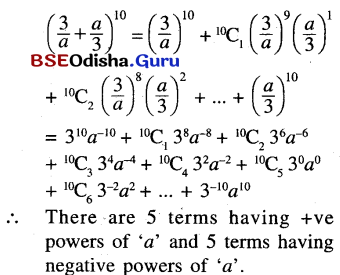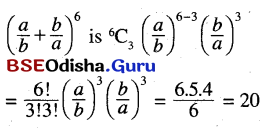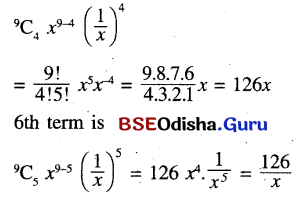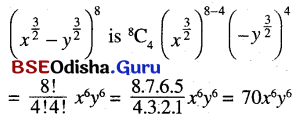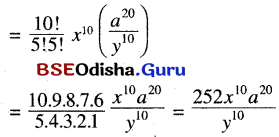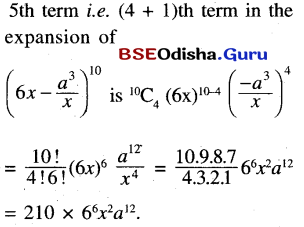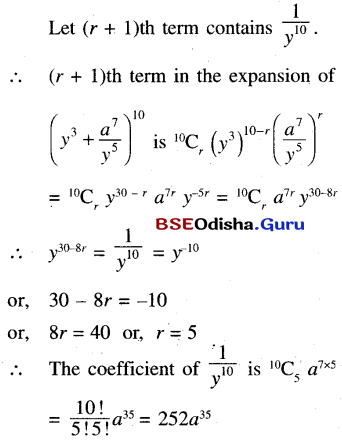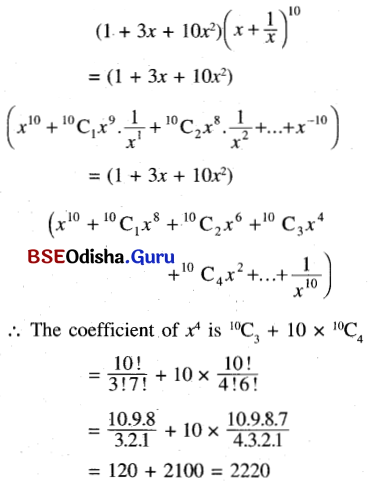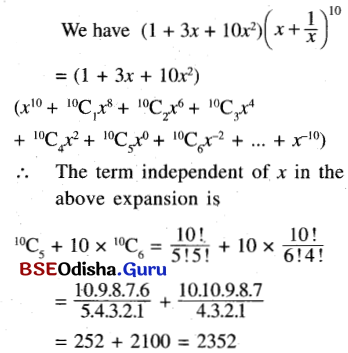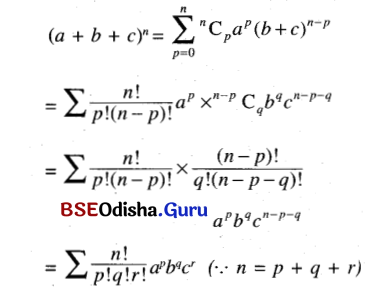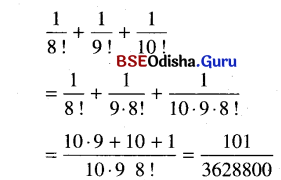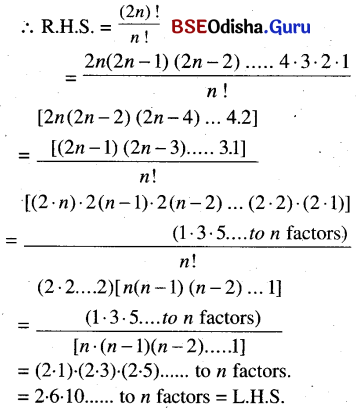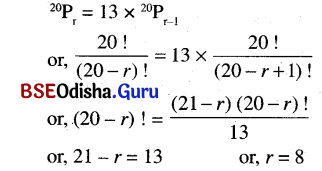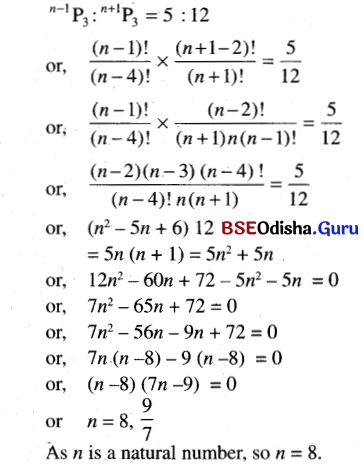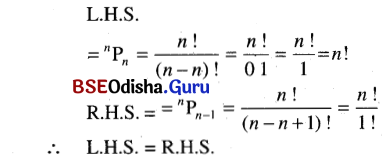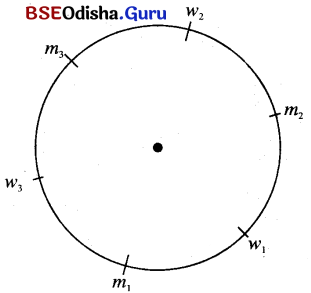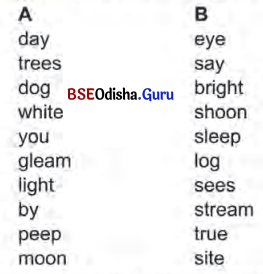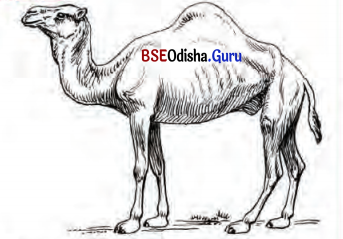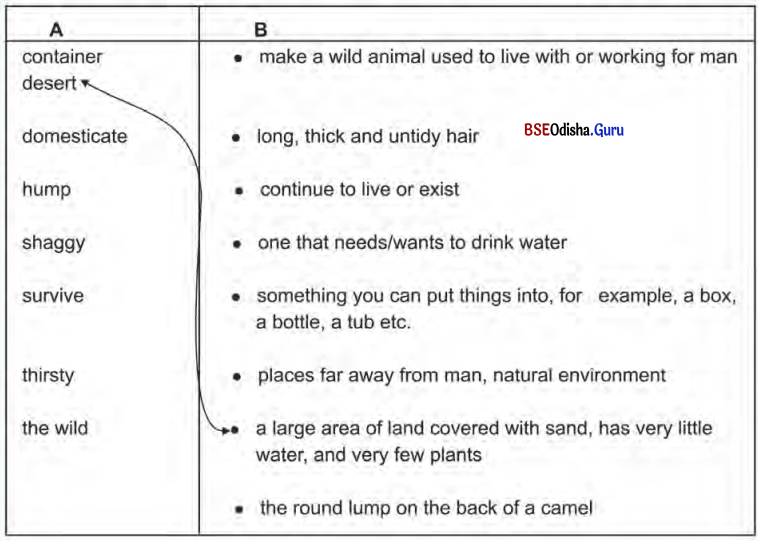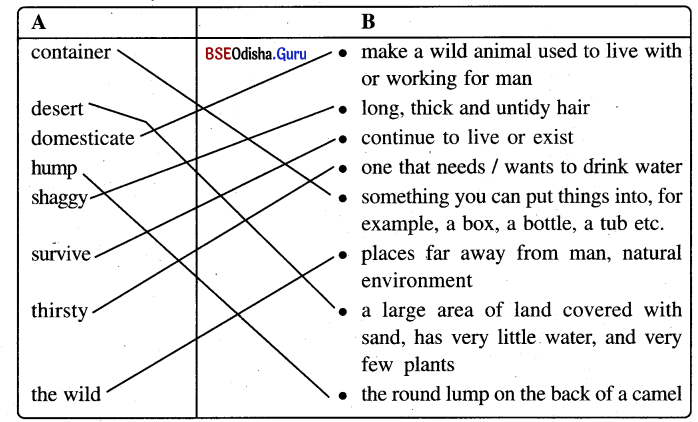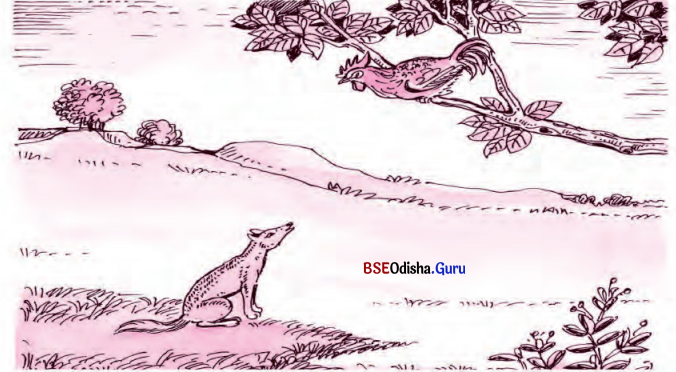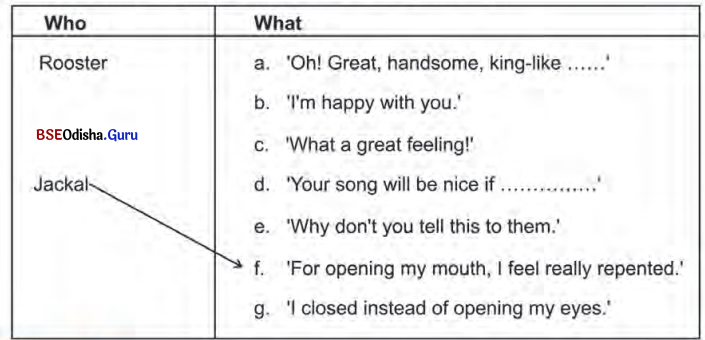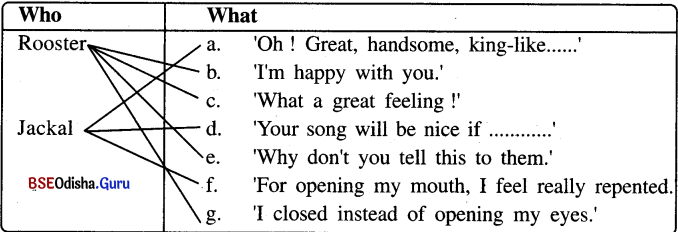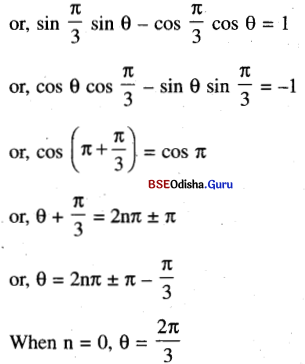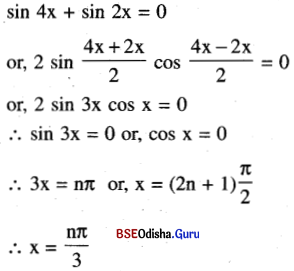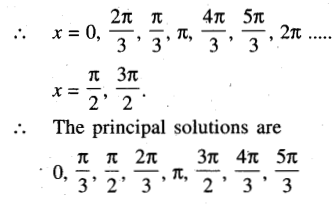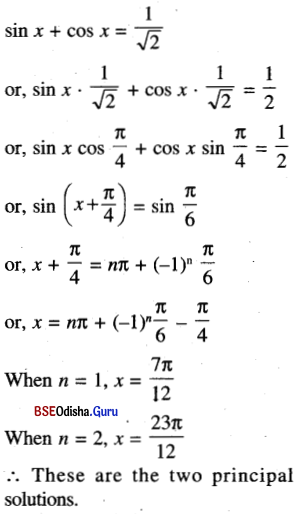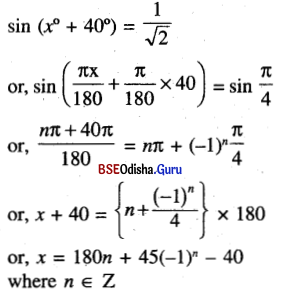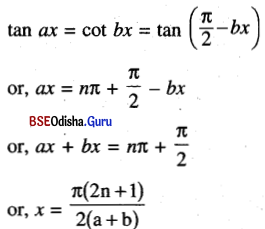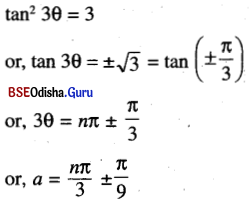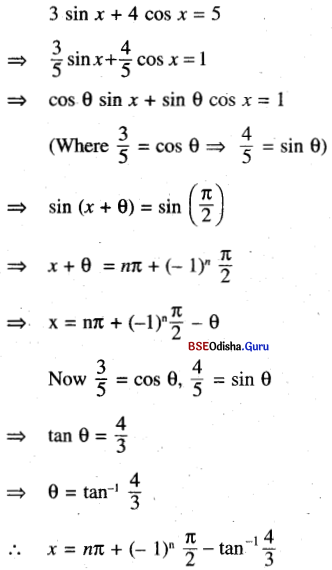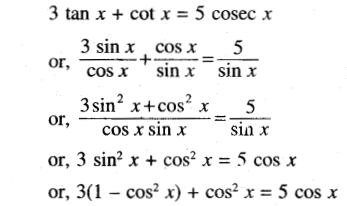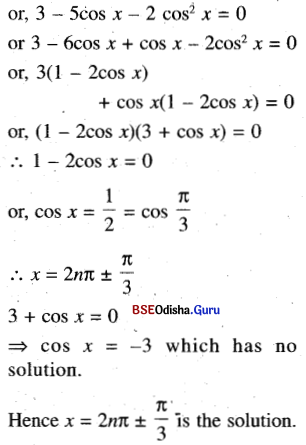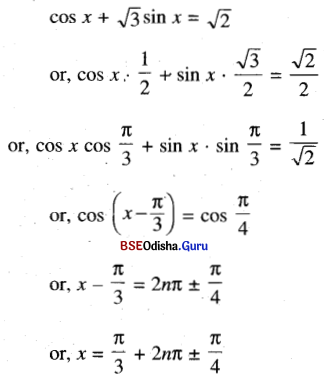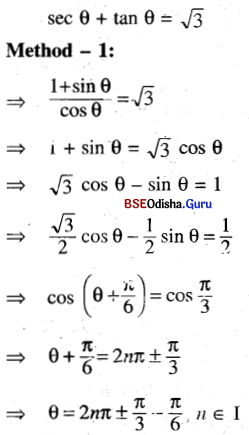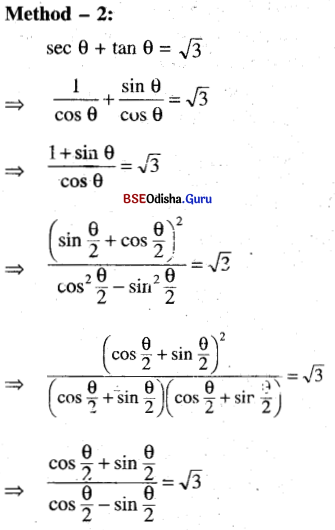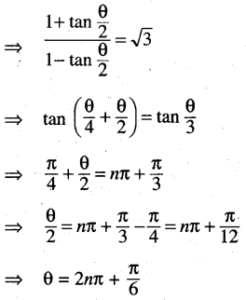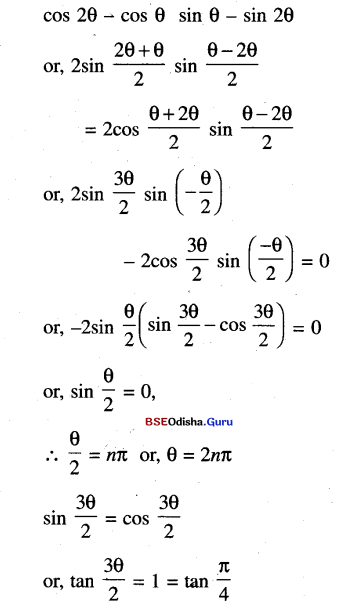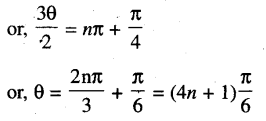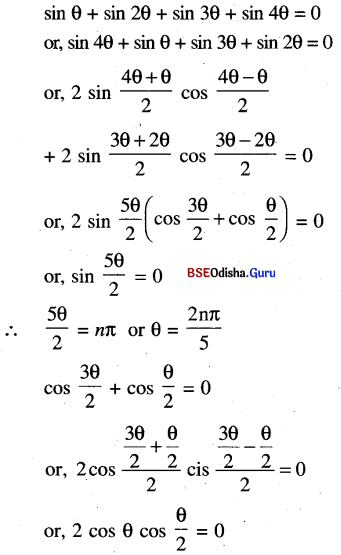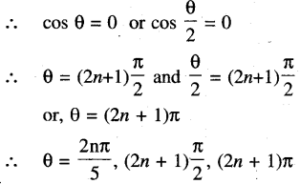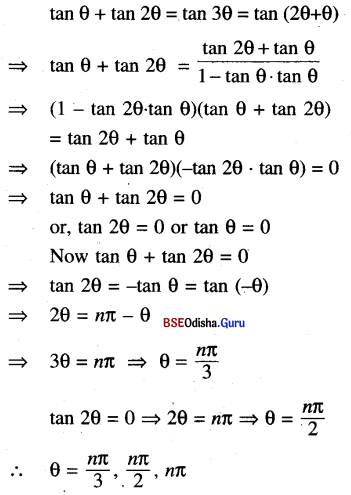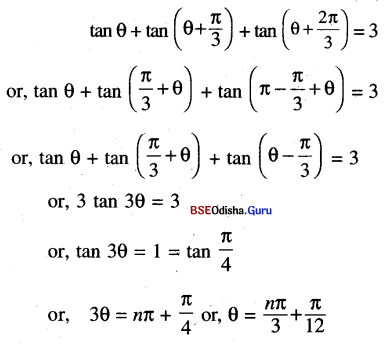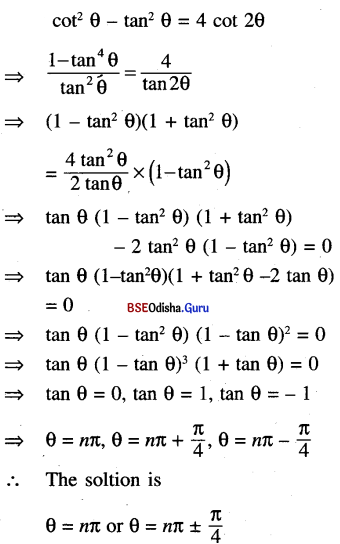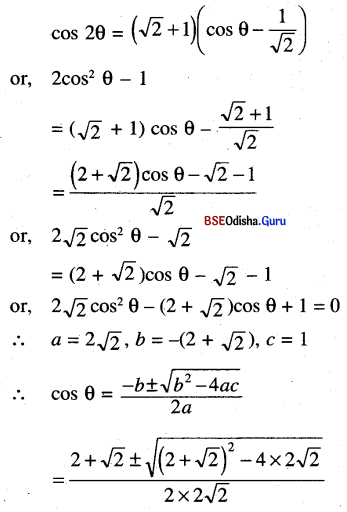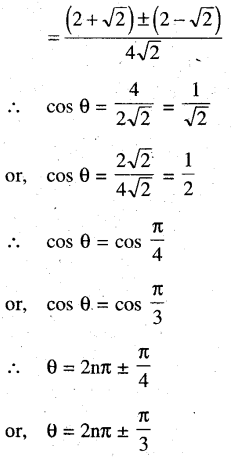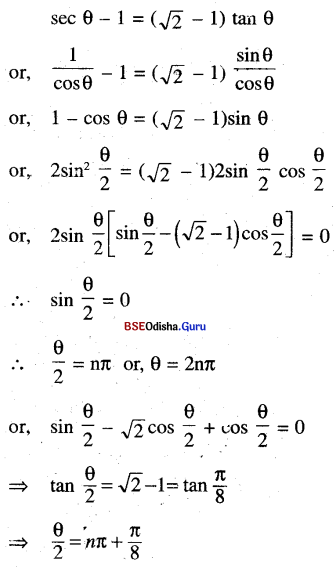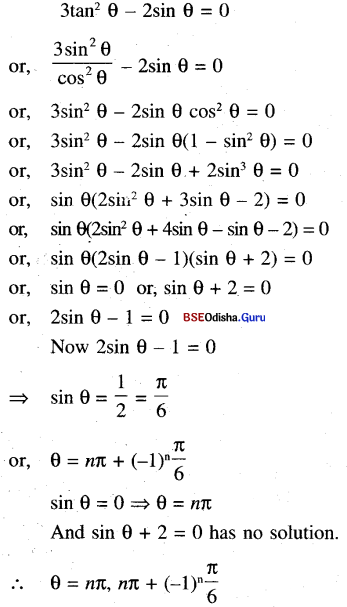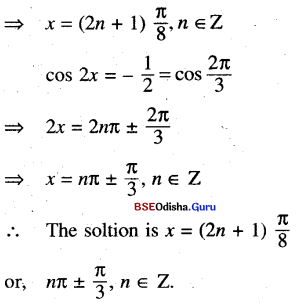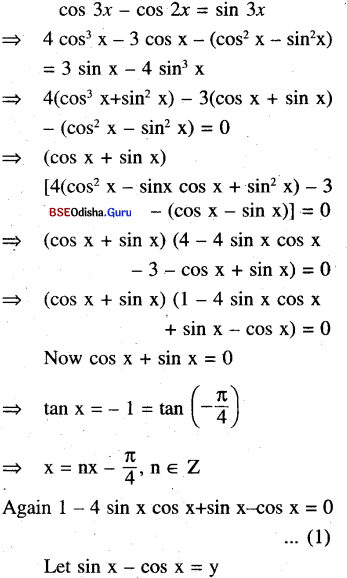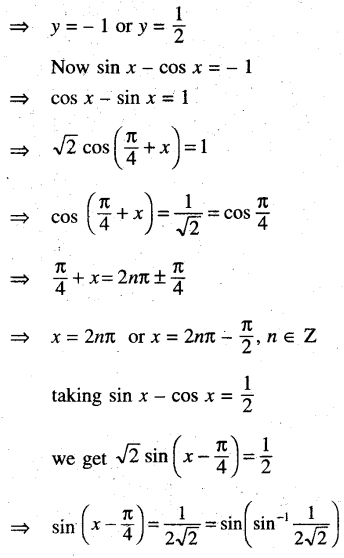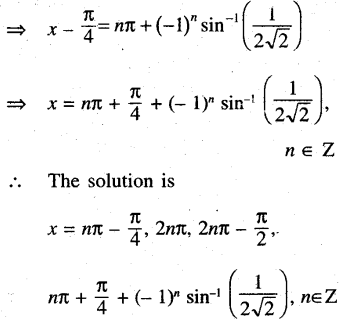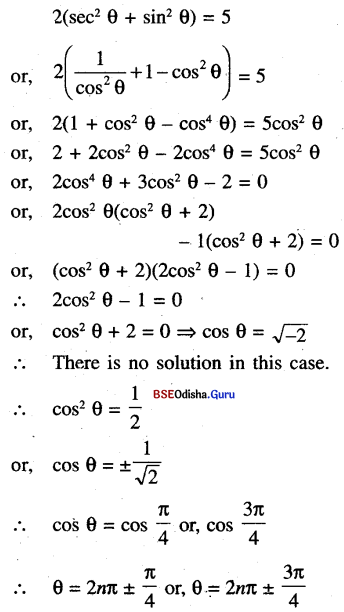Odisha State Board BSE Odisha 10th Class English Solutions Chapter 2 A letter to God Textbook Exercise Questions and Answers.
BSE Odisha Class 10 English Solutions Chapter 2 A letter to God
BSE Odisha 10th Class English A letter to God Text Book Questions and Answers
E. Let’s Understand The Text:
Question 1.
Where did Lencho live?
(ଲେଞ୍ଜୋ କେଉଁଠାରେ ବାସ କରୁଥିଲା ?)
Answer:
Lencho lived in a solitary house that sat on the top of a low hill in the valley.
Question 2.
What did he hope for?
(ସେ କ’ଣ ଆଶା କରୁଥିଲା ?)
Answer:
He hoped for a downpour or at least a good shower of rain which was the only thing the earth needed for a good harvest.
Question 3.
What did he say about the raindrops?
(ସେ ବର୍ଷାବିନ୍ଦୁଗୁଡ଼ିକ ବିଷୟରେ କ’ଣ କହିଥିଲା ?)
Answer:
Lencho remarked with excitement that the raindrops falling from the sky were new coins. The big drops were ten-cent pieces and the little ones were five-cent pieces.
Question 4.
How did the rain change?
(ବର୍ଷା କିପରି ବଦଳିଗଲା ?)
Answer:
The rain changed into a hailstorm and along with the rain very large hailstones began to fall.
Question 5.
What happened to Lencho’s corn Heads?
(ଲେଞ୍ଜୋର ଶସ୍ୟକ୍ଷେତଗୁଡ଼ିକର କ’ଣ ହେଲା ?)
Answer:
As a strong wind began to blow and along with the rain, large hailstones began to fall, Lencho’s corn fields looked white as if it was covered with salt. His corn fields were completely destroyed.

Question 6.
Who did Lencho have faith in?
(ଲେଞ୍ଜୋ କାହା ଉପରେ ବିଶ୍ବାସ ରଖୁଥିଲା ?)
Answer:
Lencho had deep faith in God.
Question 7.
Who did he write a letter to?
(ସେ କାହା ପାଖକୁ ଚିଠିଟିଏ ଲେଖୁଲା ?)
Answer:
Lencho wrote a letter to God.
Question 8.
Who read the letter?
(ଚିଠିଟିକୁ କିଏ ପଢ଼ିଲା ?)
Answer:
The postman and then the postmaster read the letter.
Question 9.
What did the postmaster do?
(ପୋଷ୍ଟମାଷ୍ଟର କ’ଣ କଲେ ?)
Answer:
The postmaster thought of writing a letter in order not to shake Lencho’s faith in God. But after opening the letter he knew that Lencho asked for hundred pesos from God. So he collected some money from his employees and several friends and contributed a part of his salary. Then he sent the money in an envelope addressed to Lencho. He was able to send only a little more than half.
Question 10.
Was Lencho surprised to find a letter for him with money in it?
(ଲେଞ୍ଜୋ ତା’ ପାଇଁ ଟଙ୍କା ଥିବା ଚିଠିଟିଏ ଦେଖୁ ଆଶ୍ଚର୍ଯ୍ୟ ହେଲା କି ?)
Answer:
No, Lencho was not surprised to find a letter for him with money in it.
Question 11.
What was Lencho’s reaction after getting the letter?
(ଚିଠିଟି ପାଇବା ପରେ ଲେଞ୍ଜୋର ପ୍ରତିକ୍ରିୟା କ’ଣ ଥିଲା ?)
Answer:
After getting the letter Lencho did not show the slightest surprise upon seeing the money in it. But he became angry while he counted the money because he got seventy pesos only whereas he asked for 100 pesos. He knew it well that neither God could have made a mistake nor could have denied what he had asked for. He began to suspect the integrity of the post office employees. In his next letter, he requested God to send him the rest money not through mail as the post office employees were a bunch of crooks.

F. Let’s Read Between The Lines:
(a)
(i) Why did Lencho keep on looking at the sky throughout the morning?
(ଲେଞ୍ଜୋ କାହିଁକି ସାରା ସକାଳ ଆକାଶକୁ ଚାହିଁ ରହିଥିଲା ?)
Answer:
There was no rain for some days and the earth needed a downpour or at least a shower for a good harvest. So Lencho kept on looking towards the northeast sky and waited for rain throughout the morning and waited for rain.
(ii) Why was the field white after the storm?
(ଝଡ଼ ପରେ କ୍ଷେତ କାହିଁକି ଧଳା ହୋଇଗଲା ?)
Answer:
Due to a hailstorm for an hour, large hailstones fell on the field along with rain. So after the storm, the field was white as if it was covered with salt.
(iii) Why did Lencho say the raindrops were like ‘new coins’?
(ଲେଞ୍ଜୋ କାହିଁକି ବର୍ଷାବିନ୍ଦୁଗୁଡ଼ିକ ନୂଆ ମୁଦ୍ରା ଭଳି ବୋଲି କହିଥିଲା ?)
Answer:
Just as Lencho predicted big raindrops began to fall from the sky. Seeing it Lencho became extremely happy having a hope of a good harvest. So he. said the raindrops were as valuable as new silver coins.
(iv) Why did Lencho prefer locusts to the storm?
(ଲେଞ୍ଜୋ କାହିଁକି ଝଡ଼ ଅପେକ୍ଷା ପଙ୍ଗପାଳଙ୍କୁ ପସନ୍ଦ କରିଥିଲା ?)
Answer:
The crops of Lencho were completely destroyed by hailstorms. He thought that his family would go without food that year. He knew that a plague of locusts would have left more than that. The hail had left nothing. So he preferred locusts to the storm.
(v) Did Lencho try to find out who had sent the money to him? Why/Why not?
(କିଏ ତା’ ପାଖକୁ ଟଙ୍କା ପଠାଇଥିଲା ଜାଣିବାକୁ ଲେଞ୍ଜୋ ଚେଷ୍ଟ କଲା କି ? କାହିଁକି କାହିଁକି ନୁହେଁ ?)
Answer:
Lencho didn’t try to find out who had sent the money to him. It was because he had firm faith in God and thought that God had listened to his prayer and had sent him the money.
(vi) What would be the reaction of the post office employees when they read the second letter.
Answer:
When the post office employees read the second letter, the postmaster showed his curiosity to read the letter as what Lencho had written.

(b) Read the passage from the text and answer the questions that follow :
(ପାଠ୍ୟବିଷୟରୁ ଅନୁଚ୍ଛେଦଟିକୁ ପଢ଼ ଓ ତଳେ ଥିବା ପ୍ରଶ୍ନଗୁଡ଼ିକର ଉତ୍ତର ଦିଅ ।)
All through the night _______________________ act of charity.
(Five paragraphs)
(i) Who does Lencho have complete faith in?
(ଲେଞ୍ଜୋ କାହା ଉପରେ ପୂର୍ଣ୍ଣ ବିଶ୍ଵାସ ରଖିଛି ? )
Answer:
Lencho has complete faith in God.
(ii) ‘Lencho was an ox of a man’ – What does the line mean?
(‘ଲେ ବଳଦ ଭଳି ମଣିଷଟିଏ ଥିଲା’ – ଏହି ଧାଡ଼ିଟି କ’ଣ ବୁଝାଉଛି ? )
Answer:
The line ‘Lencho was an ox of a man’ means though Lencho was a man, he had to work hard in the field like an ox. The writer uses such a metaphor.
(iii) What was the postmaster like?
(ପୋଷ୍ଟମାଷ୍ଟର କିଭଳି ଥିଲେ ?)
Answer:
The postmaster was a fat man and had a friendly and pleasant personality. He was very kind and helpful also. As he was a charitable person he came forward to help Lencho by collecting and contributing money from his salary.
(iv) Why did the postmaster send money to Lencho?
(ପୋଷ୍ଟମାଷ୍ଟର ଲେଞ୍ଚୋ ପାଖକୁ କାହିଁକି ଟଙ୍କା ପଠାଇଲେ ?)
Answer:
When the postmaster saw the letter addressed to God, he was greatly surprised to think about the writer’s firm faith in God. In order not to shake the writer’s faith in God, he decided to answer the letter. He did not want Lencho to face the unfortunate results of his crop loss. He managed to send him seventy pesos to let him overcome his loss of crops.
(v) What does the expression ‘an act of charity’ mean?
(‘ଏକ ବଦାନ୍ୟତାପୂର୍ଣ୍ଣ କାର୍ଯ୍ୟ’ ଶବ୍ଦପୁଞ୍ଜର ଅର୍ଥ କ’ଣ ?)
Answer:
The expression ‘an act of charity’ means an act of showing kindness and generosity towards people who are in distress.

G. Let’s Learn Some New Words:
(i) Look at the following sentence from the story.
(ଗଳ୍ପର ନିମ୍ନଲିଖତ ବାକ୍ୟଟିକୁ ଦେଖ ।)
But suddenly a strong wind began to blow and along with the rain very large hailstones began to fall.
- What are hailstones?
(କୁଆପଥର କ’ଣ ?)
‘Hailstones’ are small balls of ice that fall like rain.(‘କୁଆପଥର’ ହେଉଛି ବରଫର ଛୋଟ ବରଫପେଣ୍ଡୁ ଯାହା ବର୍ଷାପରି ପଡ଼େ ।)
- What is a hailstorm?
(କୁଆପଥର ଝଡ଼ କ’ଣ ?)
A storm in which hailstones fall is a ‘hailstorm’. We know that a storm is bad weather with strong winds, rain, thunder and lightning. (ଯେଉଁ ଝଡ଼ରେ କୁଆପଥର ପଡ଼େ ତାହା ହେଉଛି ‘କୁଆପଥର ଝଡ଼’ । ଆମେ ଜାଣୁ ଯେ ଝଡ଼ ହେଉଛି ଏକ ଖରାପ ପାଗ ଯେଉଁଥରେ ପ୍ରବଳ ପବନ ଓ ବର୍ଷା ସାଙ୍ଗକୁ ଘଡ଼ଘଡ଼ି ଓ ବିଜୁଳି ମାରୁଥାଏ ।)
There are different names in different parts of the world for storms, depending on their nature. (ଝଡ଼ ପାଇଁ ପୃଥିବୀର ବିଭିନ୍ନ ସ୍ଥାନରେ ସେମାନଙ୍କ ପ୍ରକୃତି ଅନୁସାରେ ଭିନ୍ନ ଭିନ୍ନ ନାମ ରହିଛି ।). Try to match the names in the box with their descriptions below, and fill in the blanks. (ନିମ୍ନସ୍ଥ ବର୍ଣ୍ଣନା ସହ ମେଳ ଖାଉଥିବା ନାଁଗୁଡ଼ିକୁ କୋଠରି ଭିତରୁ ବାଛିବାକୁ ଚେଷ୍ଟା କର ଏବଂ ଶୂନ୍ୟସ୍ଥାନ ପୂରଣ କର ।)
| gale, whirlwind, cyclone, hurricane, tornado, typhoon |
1. A violent tropical storm in which strong winds move in a circle: __ __c __ __ __
2. An extremely strong wind: __ a __ __
3. A violent tropical storm with very strong winds: __ __ p __ __ __
4. A violent storm with strong winds, especially in the Western Atlantic Ocean: __ __ r __ __ __ __ __ __
5. A violent storm whose center is a cloud in the shape of a funnel: __ __ __ n __ __ __
6. A very strong wind that moves very fast in a spinning movement and causes a lot of damage: __ __ __ __ l __ __ __ __
Answers:
1. cyclone
2. gale
3. typhoon
4. hurricane
5. tornado
6. whirlwind
ii) Mark how the word ‘hope’ is used in these sentences from the story.
(ଗଳ୍ପର ଏହି ବାକ୍ୟଗୁଡ଼ିକରେ ‘hope’ ଶବ୍ଦଟି କିପରି ବ୍ୟବହୃତ ହୋଇଛି ଲକ୍ଷ୍ୟ କର ।)
(a) I hope it (the hailstorm) passes quickly. (ମୁଁ ଆଶା କରୁଛି ଏହା (କୁଆପଥର) ଶୀଘ୍ର ଅତିକ୍ରମ କରିବ |)
(b) There was a single hope : help from God. (ଏକମାତ୍ର ଆଶା ଥିଲା – ଈଶ୍ବରଙ୍କଠାରୁ ସାହାଯ୍ୟ)
In sentence ‘a’, hope is used as a verb which means you wish for something to happen. (ବାକ୍ୟ ‘a’ରେ ‘hope’ ଏକ verb(କ୍ରିୟା)ରୂପେ ବ୍ୟବହୃତ ହୋଇଛି ଯାହାର ଅର୍ଥ ତୁମେ କିଛି ଘଟିବ ବୋଲି ଆଶା କରୁଛ ।)
In sentence ‘b’ it is a noun meaning a chance for something to happen. (ବାକ୍ୟ ‘b’ରେ ଏହା ଏକ ବିଶେଷ୍ୟ ଅଟେ ଯାହାର ଅର୍ଥ କିଛି ଘଟିବାର ଏକ ସମ୍ଭାବନାକୁ ବୁଝାଉଛି ।)
Difference between Noun and Verb
NOUN VERB
(i) a naming word (ନାମବାଚକ ଶବ୍ଦ) (i) an action word (କାର୍ଯ୍ୟବାଚକ ଶବ୍ଦ)
(ii) used as a subject or object (କର୍ତ୍ତା ବା କର୍ମରୂପେ ବ୍ୟବହୃତ) (ii) used as tense (କାଳରୂପେ ବ୍ୟବହୃତ)
Example:
The book (ବହିଟି) is our best friend. Did you book for Angul ?(ବୁକ୍ କରିଛନ୍ତି କି?)
They drink water (ଜଳ) . They water (ସେମାନେ ଜଳ ଦିଅନ୍ତି |) plants.
I write on a paper (କାଗଜ) . We paper (ଆମେ କାଗଜ କାନ୍ଥ) walls.
This is my little finger (ଆଙ୍ଗୁଠି ). Don’t finger (ଆଙ୍ଗୁଠି କରନ୍ତୁ) the mobile
Where is the bottle (ବୋତଲ) ? Mother bottled the pickle. (ବୋତଲରେ ପୂରାଇ ରଖୁ)

Match the sentences in Column A with the meanings of ‘hope’ in Column B.
(Aସ୍ତମ୍ଭରେ ଥିବା ବାକ୍ୟଗୁଡ଼ିକ ସହିତ Bସ୍ତମ୍ଭରେ ଥିବା ‘hope’ର ଅର୍ଥଗୁଡ଼ିକ ସହିତ ମିଳାଅ ।)
| Column – A |
Column – B |
1. Will you get the subjects you want to study in college?
I hope so. |
a feeling that something good will probably happen |
| 2. I hope you don’t mind my saying this, but I don’t like the way you are arguing. |
thinking that this would happen (It may or may not have happened) |
| 3. This discovery will give new hope to HIV/AIDS sufferers. |
stopped believing that this good thing would happen |
| 4. We are hoping against hope that the judges would not notice our mistakes. |
wanting something to happen (and thinking it quite possible) |
| 5. I called early in the hope of speaking to her before she went to school. |
showing concern that what you say should not offend disturb or the other person : a way of being polite |
| 6. Just when everybody had given up hope, the fisherman came back seven days after the cyclone. |
wishing for something to happen, although this is very unlikely. |
Answer:
| Column – A |
Column – B |
| 1. Will you get the subjects you want to study in college? I hope (verb) so. (ମୁଁ ଆଶା କରୁଛି) |
wanting something to happen (and thinking it quite possible) |
| 2. I hope (verb) you don’t mind my saying this, but I don’t like the way you are arguing. |
showing concern that what you say should not offend or disturb the other person: a way of being polite. |
| 3. This discovery (ଆବିଷ୍କାର |) will give new hope to Hl V/AIDS sufferers. |
a feeling that something good will probably happen. |
| 4. We are hoping against hope (noun) that the judges would not notice our mistakes. |
wishing for something to happen although this is very unlikely. |
| 5. I called early in the hope (noun) of speaking to her before she went to school. |
thinking that this would happen (It may or may not have happened) |
| 6. Just when everybody had given up hope (noun) the fisherman came back seven days after the cyclone. |
stopped believing that this good thing would happen. |
Now read the story and make a list of words used as verbs and nouns. Make sentences of your own using them as verbs and nouns in your words.
(ଏବେ ଗପଟିକୁ ପଢ଼ ଏବଂ କ୍ରିୟା ଓ ବିଶେଷଭାବେ ବ୍ୟବହୃତ ହୋଇଥିବା ଶବ୍ଦଗୁଡ଼ିକର ଏକ ତାଲିକା କର । ସେଗୁଡ଼ିକୁ କ୍ରିୟା ଓ ବିଶେଷ୍ୟଭାବେ ବ୍ୟବହାର କରି ନିଜ ଭାଷାରେ ବାକ୍ୟ ଗଠନ କର ।)
Answer:
The list of words used as verbs and nouns in the story: are need, water, reply, work, drop, return, rain, help, place, and comment.
need (N)
(V) |
We take money from the bank as the need arises.
I need a rented house to stay in in Bhubaneswar. |
water (N)
(V) |
Water is a basic need for human beings.
We should water our plants in the afternoon. |
reply (N)
(V) |
He did not give reply to my letter.
He is able to reply to all letters. |
work (N)
(V) |
Work is worship.
He works in a private company |
drop (N)
(V) |
Every drop of water is useful for us.
He dropped the glass which he hold in his hand |
return (N)
(V) |
He has already submitted his income tax return.
He returned home after his work was over. |
rain (N)
(V) |
The rain continued for two hours.
It rained heavily yesterday. |
help (N)
(V) |
I need your help.
He helps me whenever I am in need. |
place (N)
(V) |
Cuttack is a suitable place to live in.
He placed the telephone on a table. |
comment (N)
(V) |
No unfavorable comment should be made about others.
The minister refused to comment on the rumor of his resignation |

H. Let’s Listen And Speak:
(ଦୁଇ ଜଣ ଲେଖାଏଁ ବାପା ଏବଂ ପୁଅର ଅଭିନୟ କର । ଆବଶ୍ୟକ ହେଲେ ଏହାକୁ ମା’ ଏବଂ ଝିଅ ଅଭିନୟକୁ ବଦଳାଇ ପାର ।)
Dad: It’s quite late. Go to bed.
Son: I’ve got the final examination tomorrow.
Dad: It’s almost 12.30 at the night. No more argument. Off to bed.
Son: I have a lot to learn yet.
Dad: It’s essential to get your concepts clear.
Son: But I need to make sure that I know everything that’s required.
Dad: Isn’t it necessary to read the books to get the concepts clear?
Son: All right, father.
Read the text and prepare a dialogue like the one given above and play the roles. (ପାଠ୍ୟ ବିଷୟଟିକୁ ପଢ଼ ଏବଂ ଉପରେ ପ୍ରଦତ୍ତ ବାର୍ତ୍ତାଳାପ ଭଳି ବାର୍ତ୍ତାଳାପଟିଏ ପ୍ରସ୍ତୁତ କରି ଅଭିନୟ କର ।)
Answer:
Daughter: Mummy, I am going to bed because it is 11.30 p.m.
Mother: Have you finished your home task?
Daughter: Yes, Mum. There was little homework for today. Besides, I completed a part of it at school in my leisure hour.
Mother: Yesterday I met your English teacher at the market. He told that some of your grammar concepts are not clear. He advised giving emphasis on it.
Daughter: I am trying my best to get the concept clear with the help of my teacher.
Mother: All right. You can go now.
Daughter: Good night! Mummy.
I. Lets Learn Language:
(i) Relative Clauses (Adjective Clause) (ବିଶେଷଣ ଖଣ୍ଡବାକ୍ୟ):
Look at the following sentence : (ନିମ୍ନଲିଖ୍ ବାକ୍ୟଟିକୁ ଦେଖ )
Throughout the morning Lencho – who knew his fields intimately (ଯିଏ ନିଜ କ୍ଷେତଗୁଡ଼ିକୁ ଭଲ ଭାବରେ ଜାଣିଥିଲା) looked at the sky.
This sentence may also be written as: (ଏହି ବାକ୍ୟଟିକୁ ଏପରି ମଧ୍ୟ ଲେଖାଯାଇପାରେ )
All morning Lencho, who knew his fields intimately, looked at the sky.
The underlined parts of the sentences provide us with more information about Lencho and the woman. We call it a Relative Clause. Mark that they begin with a relative pronoun, who. Other common relative pronouns are whom, which, that, and whose.
(ରେଖାଙ୍କିତ ଅଂଶଟି ଆମକୁ ଲେଞ୍ଜୋ ବିଷୟରେ ଅଧିକ ସୂଚନା ପ୍ରଦାନ କରୁଛି । ଏହାକୁ ଆମେ “Relative clause” (ବିଶେଷଣ ଉପବାକ୍ୟ) କହୁ । ଏହା ଏକ ସର୍ବନାମ whoରେ ଆରମ୍ଭ ହୋଇଥିବା ଲକ୍ଷ୍ୟ କର । who, whom, which, that, whose ଇତ୍ୟାଦି ଅନ୍ୟାନ୍ୟ Relative Pronoun ଅଟନ୍ତି ।)
The relative clause in the above sentence is called a non-defining relative clause because we already know the identity of the person described. We don’t need the information in the relative clause to pick the person out of a larger set. (ଉପରିଲିଖ୍ ବାକ୍ୟରେ ଥିବା Relative clauseକୁ non-defining Relative clause କୁହାଯାଏ କାରଣ ଆମେ ବର୍ଣ୍ଣନା କରାଯାଇଥିବା ଲୋକଟିର ପରିଚୟ ବିଷୟରେ ପୂର୍ବରୁ ଜାଣିସାରିଛୁ । ଏକ ବୃହତ୍ ପରିସରରୁ ସେ ବ୍ୟକ୍ତିକୁ ଜାଣିବା ପାଇଁ relative clauseରେ ଥିବା ସୂଚନା ଆମର ଆବଶ୍ୟକ ନାହିଁ ।)
A.NON-DEFINING RELATIVE CLAUSE
Non-defining Relative Clause usually has a comma preceding and following it. Some writers use a dash (-) instead (as in the story). If the relative clause comes at the end, we just put a full stop. Non-defining Relative clause 1 666 comma (,) ବିରାମ ଚିହ୍ନଟି ରହେ । କିଛି ଲେଖକ comma ପରିବର୍ତ୍ତେ dash (–) ଚିହ୍ନ ବ୍ୟବହାର କରିଥା’ନ୍ତି, ଯେପରିକି ଉକ୍ତ ଗଳ୍ପଟିରେ ଲେଖକ ବ୍ୟବହାର କରିଛନ୍ତି । ଯଦି Relative clauseଟି ଶେଷରେ ରହେ ତେବେ ଆମେ ଏକ full stop (ପୂର୍ଷଚ୍ଛେଦ) ଦେଇଥାଉ ।)
A Non-defining Relative clause does not identify its antecedent (noun phrase used before the relative pronoun). (ଯଥା – whose, whom, what, when ଇତ୍ୟାଦିର ଠିକ୍ ପୂର୍ବରୁ 4 noun phrase antecedentକୁ ଚିହ୍ନଟ କରେ ନାହିଁ ।)
It (NDRC) only gives extra or additional information about its antecedent. (NDRC କେବଳ ନିଜର antecedent ବିଷୟରେ ଅତିରିକ୍ତ ସୂଚନା ଦେଇଥାଏ ।)
| A clause (ଏକ ଧାରା |) is either a simple sentence or a part of a bigger sentence having subject and predicate. (ଗୋଟିଏ ଖଣ୍ଡବାକ୍ୟ ହୁଏତ ଗୋଟିଏ ସରଳବାକ୍ୟ ବା ଏକ ବୃହତ୍ ବାକ୍ୟର ଏକ ଅଂଶ) |
Join the pairs of sentences given below using a relative pronoun.(ନିମ୍ନରେ ପ୍ରଦତ୍ତ ବାକ୍ୟ ଯୁଗ୍ମକୁ Relative pronoun ବ୍ୟବହାର କରି ସଂଯୋଗ କର ।)
- My mother is going to host a T.V. show on cooking.
She cooks very well.
- Our institution is highly popular.
It works for public welfare.
- Satish scored a goal at the last minute.
He was fortunate.
- Mother Teresa is revered as a saint.
She served mankind.
- I often go to Mumbai.
Mumbai is the commercial capital of India.
- These sportspersons are going to meet the President.
Their performance has been excellent.
Answer:
- My mother, who cooks very well, is going to host ( ଉପସ୍ଥାପନ କରିବେ ) a T.V. show on cooking.
- Our institution, which works for public welfare (ଯାହା ଜନ କଲ୍ୟାଣ ପାଇଁ କାର୍ଯ୍ୟ କରେ |), is highly popular.
- Satish, who was fortunate (ଭାଗ୍ୟବାନ ), scored a goal in the last minute.
- Mother Teresa, who served mankind (ମାନବଜାତିର ସେବା କରିଥିଲେ), is revered as a saint.
- I often go to Mumbai, which is the commercial (ବ୍ୟବସାୟିକ )capital of India.
- These sports-persons, whose performance has been excellent (କାର୍ଯ୍ୟଦକ୍ଷତା), are going to meet the President.
Sometimes the relative pronoun in a relative clause remains ‘hidden’. For example, look at the first sentence of the story.(ବେଳେବେଳେ Relative clauseରେ Relative pronoun ଲୁକ୍କାୟିତ (hidden) ରହେ । ଉଦାହରଣସ୍ୱରୂପ, ଗଳ୍ପର ପ୍ରଥମ ବାକ୍ୟଟିକୁ ଦେଖ ।)

a) The house — the only one in the entire valley — sat on the Crest of a low hill.
We can rewrite the sentence as (without any change in the meaning)
(ଏହି ବାକ୍ୟର କୌଣସି ଅର୍ଥ ପରିବର୍ତ୍ତନ ନ କରି ଆମେ ଏପରି ଲେଖିପାରିବା )
The house—which was the only one in the entire valley—sat on the crest of a low hill.
In the original sentence of the text (a) the relative pronoun ‘which’ and the verb ‘was’ are not present (hidden). ପାଠ୍ୟରେ ଥିବା ମୂଳବାକ୍ୟ (a)66 Relative pronoun ‘which’ କ୍ରିୟା ‘was’ ଉପସ୍ଥିତ ନାହିଁ (ଲୁକ୍କାୟିତ ଅଛି) ।)
(ii) Using negatives (ନାସ୍ତିବାଚକ) for emphasis (ଗୁରୁତ୍ଵ ପ୍ରଦାନ) :
We know that sentences with words such as ‘no’, ‘not’, or ‘nothing’ show the absence of something, or contradict something. (ଆମେ ଜାଣୁ ଯେ ‘no’, ‘not’ ବା ‘nothing’ ଭଳି ଶବ୍ଦଗୁଡ଼ିକ ଥିବା ବାକ୍ୟଗୁଡ଼ିକ କୌଣସି ଜିନିଷର ଅନୁପସ୍ଥିତି ବା ବିରୋଧ କରୁଥିବା ବିଷୟରେ ସୂଚାଏ ।)
For example — (From the text) (ପାଠ୍ୟବିଷୟରୁ ଉଦାହରଣସ୍ୱରୂପ )
- This year we will have no corn. (The crops have failed.) (ଫସଲ ହେବ ନାହିଁ)
- (b) The hail has left nothing. (Absence of a crop) (ଶସ୍ୟ ନ ଥିବା ଅର୍ଥରେ)
- (c) These aren’t raindrops falling from the sky, they are new coins.
(Contradicts the common idea of what the drops of water falling from the sky are.) (ଆକାଶକୁ ସାଧାରଣତଃ ବର୍ଷାବିନ୍ଦୁ ପଡ଼ିବାର ବିପରୀତ ଅର୍ଥରେ )
But sometimes negative words are used to emphasize an idea. Look at the sentences from story :
(କିନ୍ତୁ ବେଳେବେଳେ ନାସ୍ତିସୂଚକ ଶବ୍ଦସମୂହ କୌଣସି ଧାରଣାକୁ ଗୁରୁତ୍ୱ ଦେବାକୁ ବ୍ୟବହୃତ ହୋଇଥାଏ । ଗଳ୍ପର ଏହି ବାକ୍ୟଗୁଡ଼ିକୁ ଦେଖ )
- (d) Lencho …. had donc nothing else but see the sky towards the north-east. (He had done only this.) (ସେ କେବଳ ଏହା କରିଥିଲା)
- (e) The man went out for no other reason than to have the pleasure of feeling the rain on his body. (He had only this reason.) (ତା’ ପାଖରେ କେବଳ ଏହି କାରଣ ଥିଲା)
- (f) Lencho showed not the slightest suprise on seeing the money. (He showed no surprise at all.) (ସେ ଆଦୌ ଆଶ୍ଚର୍ଯ୍ୟର ଭାବନା ଦେଖାଇଲା ନାହିଁ )
Now look back at the example ‘c’. Mark that the contradiction in fact serves to emphasize the value or usefulness of the rain to the farmer.
(ଏବେ ଉଦାହରଣ ‘c’କୁ ଦେଖ । ଲକ୍ଷ୍ୟକର ଯେ ତଥ୍ୟର ବିରୁଦ୍ଧତା କୃଷକ ନିମନ୍ତେ ବର୍ଷାର ଆବଶ୍ୟକତା ଉପରେ ଗୁରୁତ୍ଵ ଦେବାରେ ସହାୟକ ହୋଇଛି ।)
Find sentences in the story with negative words, which express the following ideas emphatically : (ନାସ୍ତିସୂଚକ ଶବ୍ଦଥିବା ବାକ୍ୟଗୁଡ଼ିକ ଗଳ୍ପରୁ ବାଛ ଯାହାକି ନିମ୍ନୋକ୍ତ ଧାରଣାକୁ ଦୃଢ଼ଭାବେ ପ୍ରକାଶ କରୁଥିବ ।)
(1) The trees lost all their Leaves.
(2) The letter was addressed to God himself.
(3) The postman saw this address for the first time in his life.
Answer:
(1) Not a leaf (ପତ୍ର) remained on the trees.
(2) It was nothing less than a letter to God.
(3) Never in his career as a postman had he known that address.
J. Let’s Write:
Report Writing (ବିବରଣୀ ଲିଖନ)
Read the newspaper report given below. (ନିମ୍ନରେ ପ୍ରଦତ୍ତ ସମ୍ବାଦପତ୍ର ବିବରଣୀ ପଢ଼ ।)
Note the information given at different points. (ବିଭିନ୍ନ ସ୍ଥଳରେ ପ୍ରଦତ୍ତ ସୂଚନାଗୁଡ଼ିକୁ ଟିପି ରଖ ।)
Title – Rath Yatra pulls in lakhs of devotees to Puri
Source – The Times of India.
Place and date – Puri 22nd June
Topic sentence and introduction – All roads led to Purl on Thursday with lakhs of devotees flocking to the town to participate in the grand Rath Yatra festival. A wave of euphoria swept across the beach town with the reigning
Details of deities the Yatra – commencing their nine-day ‘outing’ from Jagannath shrine to Gundicha temple in a boisterous procession.
Information on the terror threat and stampede – However, the threat of possible terror attack and the death of two pilgrims allegedly in a stampede cast a shadow on the festivities. There were intelligence reports that some subversive groups might and create trouble during Rath Yatra.
Further details of action taken by the authorities – “Security was tightened compared to the previous years” the DGP said. “We also appeal to the people to remain alert.” the DGP added.

Word Notes:
led to Puri – ପୁରୀକୁ ନେଇଗଲା |
Lakhs of devotees – ଲକ୍ଷ ଲକ୍ଷ ଭକ୍ତ
Flocking – ପ୍ରବାହିତ
grand – ଗ୍ରାଣ୍ଡ୍
Wave of euphoria – ଇଉଫୋରିଆର ତରଙ୍ଗ |
swept across – ଅତିକ୍ରମ କଲା |
beach – ବେଳାଭୂମି
shrine – ଶ୍ରୀକ୍ଷେତ୍ର
with the reigning deities – ଶାସକ ଦେବତାମାନଙ୍କ ସହିତ |
outing – ବାହାଘର
commencing – ଆରମ୍ଭ
allegedly – ଅଭିଯୋଗ ହୋଇଛି
in a boisterous procession – ଏକ ଶୋଭାଯାତ୍ରାରେ |
pilgirm – ତୀର୍ଥଯାତ୍ରୀ
appealed – ଆବେଦନ କରିଥ
1) Now imagine that you are a reporter for ‘The Indian Express’. You have received the news about the recent cyclone that hit Odisha. Using the guidelines given in the box above, complete a similar report for the newspaper.
(ଏବେ କଳ୍ପନା କର ଯେ ତୁମେ ‘The Indian Express’ର ଜଣେ ସାମ୍ବାଦିକ । ଓଡ଼ିଶାକୁ ଅଳ୍ପଦିନ ତଳେ କ୍ଷତିଗ୍ରସ୍ତ କରିଥିବା ବାତ୍ୟା ବିଷୟରେ ତୁମେ ଏକ ସମ୍ବାଦ ପାଇଲ । ଉପରେ କୋଠରିରେ ପ୍ରଦତ୍ତ ନିର୍ଦେଶଗୁଡ଼ିକୁ ବ୍ୟବହାର କରି ସମ୍ବାଦପତ୍ର ନିମନ୍ତେ ଏକାପରି ଖବର ପ୍ରସ୍ତୁତ କର ।).
Answer:
The Super Cyclone brings about the unthinkable tragedy
The Indian Express,
Cuttack, 05 November
The super cyclone of the 29th of October in the district brought about an unthinkable tragedy to the people and their property. A large number of trees were uprooted. Thatched houses were blown away and the mud-built houses of the poor people collapsed. Crops were completely destroyed. Livestock died in numbers. Above all, it caused a great loss of lives and properties.
However, government and voluntary organizations geared up to provide relief commodities. Medicines were supplied to the affected people. Helps from all quarters flew continuously.
K.Let’s Know More (Vocabulary):
A. Related words.
| Noun |
Verb |
Adjective |
Adverb |
| intimacy |
intimate |
intimate |
intimately |
| preparation |
prepare |
preparatory/ prepared |
– |
| prediction |
predict |
predictable |
predictably |
| destruction |
destroy |
destructive |
destructively |
| sadness |
sadden |
sad |
sadly |
| promise |
promise |
promising |
– |
| approach |
approach |
approachable |
– |
| expose |
expose |
exposed |
– |
| Amiability |
– |
amiable |
amiably |
| charity |
– |
charitable |
charitably |
| surprise |
surprise |
surprised/surprising |
surprisingly |
| denial |
deny |
deniable |
– |
| instruction |
instruct |
instructive |
instructively |
| confidence |
confide |
confident |
confidently |
| immediacy |
– |
immediate |
immediately |
| hunger |
– |
hungry |
hungrily |
| expression |
express |
express |
expressly |
| heart |
– |
hearty |
heartily |
| obligation |
oblige |
obliging |
obligingly |
| destruction |
destroy |
destructive |
– |
| resolution |
resolve |
– |
– |
| correspondence |
correspond |
corresponding |
correspondingly |

B. A single word for the group of words:
1. a long and narrow area of land between the hills – valley
2. the highest part of the hill – crest
3. scattered over the area – dotted with
4. the cutting and gathering of the corn – harvest
5. a heavy fall of rain – downpour
6. a short period of light rain – shower
7. a light meal was taken in the evening – supper
8. a heavy meal was taken at night – dinner
9. say that something will happen but are not sure – predict
10. very big – huge
11. come nearer to someone – approach
12. cover with a piece of cloth – drape
13. small balls of ice that fall from the sky – hailstones
14. look like somebody or something – resemble
15. leave oneself expose to open danger – expose
16. that has been turned into ice -frozen
17. the spiritual past of someone that is believed to continue existing after death – the soul
18. a large number of unpleasant animals or insects – plague
19. an insect like a grasshopper – locust
20. without others, being alone – solitary
21. unhappy or worried – upset
22. a serious lack of food which caused death – hunger
23. the feeling of inside about what is right or wrong – conscience
24. a box which is meant for dropping letters – mailbox
25. with great pleasure – heartily
26. friendly and pleasant – amiable
27. the act of writing letters to someone – correspondence
28. make a remark or criticize – a comment
29. a firm decision – resolution
30. good feelings among people – goodwill
31. a dishonest person – crook
32. being kind and helping people – charity
33. a feeling of happiness – contentment
34. strong faith or trust – confidence
35. a man in charge of a post office – postmaster
36. a man whose job is to collect and deliver letters, parcels, money orders, etc. – a postman
37. a person who has been employed – an employee
38. a very short period of time – the moment
39. a few, not many – several
40. ideas or feelings showing through words or actions – expression
41. very bad weather with heavy rain, wind, thunder, and lightning – storm
42. a storm in which hailstones fall – hailstorm
43. a violent storm in the tropical region – typhoon
44. an extremely strong wind – gale
45. a tropical storm in which strong winds move in circles – cyclone
46. strong winds in Western Atlantic Ocean – hurricane
47. a funnel-shaped strong winds – Tornado
48. a strong wind that moves in a spinning movement – a whirlwind
C. Opposite words (antonyms) of the following words:
low — high
always — never
intimate — distant, formal
smaller — larger
approach — withdraw
sweet — sour
satisfied — dissatisfied
drape — uncover
strong — weak
cover — uncover
upset (y) — Console
sadness — happiness
solitary — busy, sociable
remember — forget
alive — dead
amiable — unpleasant, unfriendly
goodwill — ill-will, hostility
impossible — possible
usual — unusual
contentment — unhappiness, displeasure
count — uncount
open — close
faith — disbelief, disloyalty, distrust
near — far
pass — fail
ripe — immature, green
good — bad, evil
older — younger
begin (y) — end
fresh — stale
pleasure — pain
regard — disregard
drop — rise, lift
large — small
upset (adj) — calm
destroy — build, create, construct
sorrowful — cheerful
loss — profit
die — live
inside — outside
serious — careless
several — few
able — unable/disable
huge — tiny
confidence — doubt, distrust
public-private
willing — unwilling
resemble — vary, differ, contrast
quickly — slowly
expose — cover, protect, conceal
remain — leave, depart
trouble (n) — luck, pleasure, peace
deny — admit, accept

BSE Odisha 10th Class English The Solitary Reaper Important Questions and Answers
Very Short & Objective Questions With Answers:
Answer The Following Questions In A Word Or A Phrase:
Question 1.
Which country did G.L. Fuentes belong to?
Answer:
Mexico
Question 2.
At what age did G.L. Fuentes start writing?
Answer:
15
Question 3.
What was the only one in the entire valley?
Answer:
Lencho’s house
Question 4.
What was flowing by the low hill?
Answer:
the river
Question 5.
What was dotted with the flowers?
Answer:
the field of ripe corn
Question 6.
When did Lencho look at the sky in the northeast direction?
Answer:
in the morning
Question 7.
‘Now we’re really going to get some water, woman.’ Who is the ‘woman’ here?
Answer:
Lencho’s wife
Question 8.
Who was working in the field?
Answer:
the older boys

Question 9.
How long were the little boys playing?
Answer:
till dinner
Question 10.
How was the air when it started raining?
Answer:
fresh and sweet
Question 11.
What did Lencho consider the raindrops?
Answer:
new coins
Question 12.
What began to fall along with the rain?
Answer:
very large hailstones
Question 13.
What did the large hailstones resemble?
Answer:
new silver coins
Question 14.
What did the boys collect when hailstones began to fall?
Answer:
the frozen pearls
Question 15.
“I hope it passed quickly.” What does ‘it’ refer to?
Answer:
the hailstones
Question 16.
How long did the hailstorm continue?
Answer:
for an hour
Question 17.
What was totally destroyed due to a hailstorm?
Answer:
corn

Question 18.
What were Lencho’s sons filled with after a hailstorm?
Answer:
sadness
Question 19.
What was that night like?
Answer:
sorrowful
Question 20.
“All our work, for nothing.” To whom did Lencho say so?
Answer:
to his sons
Question 21.
What was the single hope in that solitary home?
Answer:
help from God
Question 22.
What can see everything, even what is deep in one’s conscience?
Answer:
God’s eyes
Question 23.
How was Lencho working in the fields?
Answer:
like an animals
Question 24.
How much money did Lencho need?
Answer:
hundred pesos
Question 25.
What did Lencho write on the envelope?
Answer:
To Gode
Question 26.
Who dropped the letter into the mailbox?
Answer:
Lencho
Question 27.
The postman went to his boss laughing heartily. Who is the ‘boss’ here?
Answer:
the postmaster
Question 28.
Who had in his career never known that address?
Answer:
the postman

Question 29.
What was the postmaster like?
Answer:
a fat amiable person
Question 30.
“What a faith !” who said this?
Answer:
the postmaster
Question 31.
Where did the postmaster tap the letter?
Answer:
on his desk
Question 32.
Who opened Lencho’s letter to God?
Answer:
the postmaster
Question 33.
What did the postmaster stick to?
Answer:
his resolution
Question 34.
How much money did the postmaster himself give?
Answer:
a part of his salary
Question 35.
What did the letter to Lencho contain?
Answer:
only a single word as a signature: God
Question 36.
Who handed the letter to Lencho the following Sunday?
Answer:
the postman
Question 37.
Who was experiencing the contentment of a man who had performed a good deed?
Answer:
the postmaster
Question 38.
Who had unflinching faith in God?
Answer:
Lencho
Question 39.
What did Lencho ask for near the window of the post office?
Answer:
paper and ink

Question 40.
Where did Lencho write his second letter to God?
Answer:
on the public writing table.
Fill In The Blanks With Right Words:
1. The lonely house of Lencho sat on ___________.
Answer:
the crest of low hill
2. The ripe corn field always promised ___________.
Answer:
a good harvest
3. The only thing the earth needed was a ___________.
Answer:
a downpour or at least a shower
4. Lencho had predicted big drops of rain during ___________.
Answer:
the meal
5. Lencho compared raindrops with ___________.
Answer:
new coins
6. The big raindrops are ___________ cent pieces.
Answer:
10
7. ___________ began to blow suddenly.
Answer:
A strong wind

8. Along with the rain ___________ began to fall.
Answer:
large hailstones
9. Hailstones resembled ___________.
Answer:
new silver coins
10. Lencho’s cornfield looked white as if covered with ___________.
Answer:
salt
11. ___________ were gone from the plants.
Answer:
Flowers
12. Lencho’s soul was filled with ___________.
Answer:
sadness
13. The children went out to collect ___________ in the rain.
Answer:
frozen pearls
14. With a ___________ Lencho regarded the field of ripe corn with its flowers draped in a curtain of rain.
Answer:
satisfied expression
15. Lencho’s family lived in the ___________ house in the middle of the valley.
Answer:
solitary
16. ___________ was a single hope of Lencho.
Answer:
With the help of God
17. ‘Don’t be so upset’ Lencho said this to his ___________.
Answer:
family

18. Lencho thought only of one hope. That is ___________.
Answer:
the help of God
19. God sees what is deep in one’s ___________.
Answer:
conscience
20. Lencho was ___________.
Answer:
anoxia man
21. Lencho began to write a letter to God at ___________ on the following Sunday.
Answer:
daybreak
22. The synonym of ‘upset’ is ___________.
Answer:
disturbed
23. The antonym of ‘drape’ is ___________.
Answer:
reveal/unwrap
24. People say no one dies of ___________.
Answer:
hunger
25. According to Lencho a plague of ___________ would have left more than this.
Answer:
locusts
26. Lencho carried his first letter to ___________.
Answer:
town
27. Lencho asked God ___________ pesos in his first letter.
Answer:
100

28. Lencho wrote ___________ on the envelope of the first letter.
Answer:
To God
29. After placing a stamp on the envelope, he dropped it into ___________.
Answer:
the mailbox
30. One of the employees refers to ___________.
Answer:
the postman
31. The postmaster was a ___________ fellow.
Answer:
amiable
32. The postmaster immediately turned ___________ after tapping the letter on his desk.
Answer:
serious
33. What faith! It is a ___________ on Lencho.
Answer:
comment
34. Synonym of ‘Correspondence’ is ___________.
Answer:
accord/equivalence
35. Lencho demanded hundred pesos in order to ___________ his field again.
Answer:
sow
36. Small balls of ice that fall to the ground with rain is called ___________.
Answer:
hailstones
37. ___________ read the first letter of Lencho.
Answer:
Postmaster
38. The antonymn of ‘amiable’ is ___________.
Answer:
unfriendly/disgraceful

39. To answer the letter the postmaster needed ___________ than goodwill, ink, and paper.
Answer:
something more
40. The Postmaker stuck to his ____________.
Answer:
resolution
MULTIPLE CHOICE QUESTIONS (MCQS) WITH ANSWERS
Pick out the correct alternative.
Question 1.
Who was Lencho?
(A) A postman
(B) A postmaster
(C) A farmer
(D) A laborer
Answer:
(C) A farmer
Question 2.
Lencho hoped Lorraine because ___________.
(A) the weather was rather hot.
(B) the crop in his field badly needed water
(C) there was a drought in Mexico
(D) he would sow seeds in his field
Answer:
(B) the crop in his field badly needed water
Question 3.
After the destruction caused by the hailstorm. Lencho was worried about ___________.
(A) his children
(B) the shortage of food for the entire year
(C) the crops destroyed by the hailstorms
(D) the pleasant days to come in future
Answer:
(B) the shortage of food for the entire year
Question 4.
Who was deeply moved by Lencho’s faith in God?
(A) the postman
(B) the postmaster
(C) the children
(D) the woman
Answer:
(B) the postmaster
Question 5.
Lencho lived on the crest of a ___________.
(A) mountain
(B) hill
(C) hillock
(D) plateau
Answer:
(C) hillock

Question 6.
Lencho did not try to find out the real sender of the money because ___________.
(A) he was dreaming about the happy days ahead
(B) he had deep faith in God
(C) he was heartbroken at the loss of crops
(D) he was very ungrateful
Answer:
(B) he had deep faith in God
Question 7.
When Lencho counted the money, he became angry and had all doubts about ___________.
(A) the postmaster
(B) the postman
(C) his wife and his sons
(D) the people working in the post office.
Answer:
(D) the people working in the post office.
Question 8.
Lencho blamed the post office employees because ___________.
(A) they did not help his family
(B) he had great faith in God
(C) the post office employees had stolen a part of the money.
(D) they didn’t deliver the letter on time.
Answer:
(C) the post office employees had stolen a part of the money
Question 9.
The postmaster along with the post office employees sent Lencho the money because ___________.
(A) they were related to each other
(B) it was an act of kindness and selflessness
(C) the postmaster was a rich man
(D) he was the victim of the hailstorm
Answer:
(B) it was an act of kindness and selflessness
Question 10.
In the story ‘ The rain turned into hailstorm’ implies ___________.
(A) the conflict between the postman and the postmaster
(B) the conflict between man and nature
(C) the conflict between his wife and children
(D) the conflict between the storm and the crops
Answer:
(B) the conflict between man and nature
Question 11.
From the height of the low hill, one could see ____________.
(A) the stream and the brook
(B) the river and the cornfield
(C) the garden with trees in the valley
(D) the hut and the trees
Answer:
(B) the river and the cornfield
Question 12.
Lencho looked at the sky towards the ____________.
(A) south-west
(B) south-east
(C) north-west
(D) north-east
Answer:
(D) north-east

Question 13.
Lencho thought that the only thing that the earth needed was ___________.
(A) a downpour
(B) a shower
(C) a storm
(D) a hailstorm
Answer:
(A) a downpour
Question 14.
The older boys were working in ___________.
(A) the woman
(B) crops
(C) Lencho
(D) raindrops
Answer:
(D) raindrops
Question 15.
The smaller boys were playing ____________.
(A) in the playground
(B) in the meadow
(C) near the house
(D) in the park
Answer:
(C) near the house
Question 16.
Big drops of rain began to fall during ___________.
(A) the dinner
(B) the supper
(C) the lunch
(D) the breakfast
Answer:
(B) the supper
Question 17.
Huge mountains of clouds could be seen approaching ___________.
(A) in the south-east
(B) in the north-west
(C) in the south-west
(D) in the north-east
Answer:
(D) in the north-east
Question 18.
When big drops of rain began to fall, Lencho went out to have the pleasure of feeling the rain ___________.
(A) on his head
(B) on his hand
(C) on his body
(D) on his legs
Answer:
(C) on his body
Question 19.
Lencho said that the big raindrops were like ____________ cent pieces.
(A) five
(B) ten
(C) twenty
(D) fifty
Answer:
(B) ten
Question 20.
After the hailstorm. Lencho’s cornfield was covered with __________________
(A) clouds
(B) locusts
(C) hailstones
(D) salt
Answer:
(C) hailstones

Question 21.
The expression ‘frozen pearls’ refers to ___________.
(A) locusts
(B) crops
(C) hailstones
(D) raindrops
Answer:
(C) hailstones
Question 22.
The hailstones looked like __________.
(A) old gold coins
(B) new copper coins
(C) new silver coins
(D) old bronze coins
Answer:
(C) new silver coins
Question 23.
‘All our work for nothing’ said by year said by ___________.
(A) Lencho
(B) the woman
(C) the small boys
(D) the older boys
Answer:
(C) the small boys
Question 24.
We’ll go hungry __________.
(A) fruitless
(B) the postman
(C) flowerless
(D) the boys
Answer:
(A) fruitless
Question 25.
Lencho’s field looked as if it was covered with ____________.
(A) cotton
(B) snow
(C) foam
(D) salt
Answer:
(D) salt
Question 26.
The hail rained for __________.
(A) an hour
(B) two hours
(C) three hours
(D) four hours
Answer:
(A) an hour
Question 27.
The hailstorm made the plants ___________.
(A) the dinner
(B) the supper
(C) the lunch
(D) the breakfast
Answer:
(B) the supper
Question 28.
What time did Lencho write the letter to God?
(A) at sunset
(B) at dusk
(C) at daybreak
(D) at night
Answer:
(C) at daybreak

Question 29.
Lencho preferred ___________ to hailstorm.
(A) downpour
(B) ox
(C) mosquitoes
(D) locusts
Answer:
(D) locusts
Question 30.
God can see everything even what is ___________.
(A) heart
(B) conscience
(C) mind
(D) personality
Answer:
(B) conscience
Vocabulary
Do As Directed:
Question 1.
They are dishonest people. (Substitute a single word for the underlined words)
Answer:
crooks
Question 2.
He expressed his satisfaction. (Substitute a single word for the underlined word)
Answer:
contentment
Question 3.
Scattered over an area (Write a single word)
Answer:
dotted with
Question 4.
Lencho lived in a solitary house. The underlined word means __________.
Answer:
lonely
Question 5.
Mr. Kar is working in an ____________ organization. (Fill in the blank with a word opposite to public)
Answer:
private
Question 6.
Dr. Goutam Maharana is a friendly and pleasant young man. (Substitute a single word for the underlined part)
Answer:
amiable
Question 7.
Lencho said, “Don’t be upset.” Here ‘upset’ means __________. (Fill up the blanks)
Answer:
disturbed

Question 8.
In spring we __________the swimming pool. (Fill in the blank with a word opposite to ‘cover’)
Answer:
uncover
Question 9.
Aditya expressed his __________ to see the evils. (Fill in the blank with a word opposite to ‘pleasure’)
Answer:
displeasure
Question 10.
The ____________ of the meteorologists came true. (Fill in the blank with a word related to ‘predict’)
Answer:
prediction
Question 11.
The bombs caused a lot of __________. (Fill in the blank with a word related to ‘destroy’)
Answer:
destruction
Question 12.
With a satisfied __________, he looked at his cornfield. (Fill in the blank with the noun form of ‘express’)
Answer:
expression
Question 13.
He can foretell the future. (Substitute a single word for the underlined portion)
Answer:
predict
Question 14.
But he stuck to his resolution. Here ‘resolution’ means __________. (Fill up the blanks)
Answer:
firm decision
Question 15.
Nobody likes __________ people. (Fill in the blank with a word opposite to ‘honest’)
Answer:
dishonest
Question 16.
God sees everything, even what is deep in one’s inner sense of right or wrong. A single word for the underlined expression will be ___________.
Answer:
conscience
SUBJECTIVE QUESTIONS WITH ANSWERS
Answer the following question in about 50 words.
Question 1.
Who was Lencho? What was he like?
Answer:
Lencho was a farmer who lived with his family in a solitary house on the top of a low hill. He was very poor and innocent. He was very hardworking. He knew his fields well and worked there like an animal. No doubt he was literate and he was able to read and write. Besides he had firm faith in God.
Question 2.
Why did Lencho keep on looking at the sky throughout the morning?
Answer:
Lencho was a poor farmer who knew his com fields closely. He could see his fields of ripe com full of flowers that always promised a good harvest. He hoped for a downpour or at least a shower of rain for his fields of ripe corn. So Lencho kept on looking at the sky towards the northeast throughout the morning.
Question 3.
How was Lencho’s cornfield destroyed?
(Or)
What was the effect of the hailstorm on Lencho’s cornfield?
Answer:
Just as Lencho had predicted, big drops of rain began to fall at night. His joy knew no bounds as the water was badly necessary for his field. But soon a strong wind began to blow and along with the rain very large hailstones began to fall. It continued for an hour. The field was completely covered with hailstones. As a result, the com was totally destroyed.

Question 4.
What did Lencho predict? How was it materialized?
Answer:
Once Lencho felt the necessity of a shower of rain for his com field in order to have a good harvest. So one morning he kept on looking at the sky towards the northeast anticipating a downpour or a shower. He was sure about it in the afternoon and informed his wife all about it. His imagination materialized when he was taking his meal. Big drops of rain began to fall and in the northeast huge mountains of clouds could be seen approaching.
Question 5.
Why did Lencho say that the raindrops were like new coins?
Answer:
Lencho’s ripe corn field was badly in need of rain and he had been anxiously waiting for the raindrops for a long time, as a shower of rain had great importance for him. In the northeast huge mountains of clouds approached and then the air became fresh and sweet. Lencho went out for no other reason than to have the pleasure of feeling the rain on his body. When he returned home, he exclaimed that those raindrops were like new silver coins.
Question 6.
Why didn’t Lencho’s happiness last long?
Answer:
It began to rain at night just as Lencho had predicted before. He was delighted to see it. He came out and felt the pleasure of rain on his own body. But due to the irony of his fate, his happiness didn’t last long. Soon large hailstones began to fall along with a strong wind. The hail rained in the valley for an hour which snatched away all his happiness.
Question 7.
Why did Lencho prefer locusts to the storm?
Answer:
Locusts are a kind of insects that eat crops and vegetables. They fly in large numbers and eat up some crops and then leave the fields. But the storm came and spoiled the whole of the ripe corps in the Lencho’s corn field. So Lencho preferred locusts to the storm because the locusts would not have caused so much damage to the crops as the storm had done.
Question 8.
Why did Lencho write a letter to God?
(Or)
Why did Lencho write a letter to God? What did he pray to him?
Answer:
Lencho had deep faith in Almighty God. He was sure that God would certainly help him during his distress. When all his com fields were destroyed by the hailstones, Lencho’s heart was filled with sorrow. He became helpless and depended on God who might save his family from starvation and hunger throughout the year. Since he had a single hope: hope from God, he wrote a letter to Him asking for a hundred pesos to sow his field again and feed his family until the next crop came.
Question 9.
What was the only hope in everybody’s heart?
Answer:
The only hope in everybody’s heart was that God would certainly help them as God sees everything, even what is deep in one’s conscience. So the following Sunday at daybreak Lencho wrote a letter to God praying to Him to send him a hundred pesos so that he could sow his field again and feed his family until the next crop came.

Question 10.
What did the employees feel after receiving Lencho’s letter to God?
Answer:
The postman laughed heartily when he saw the letter addressed to God. Career as a postman had he known that address. The postmaster also broke out laughing. Soon he became serious and tapped the letter on his desk. He was astonished to see Lencho’s deep faith in God.
Question 11.
WhatdidLenchowritetoGodinhis first letter?
Answer:
Lencho’s com field was totally destroyed by the hailstorm. So he thought that his family would go hungry that year. He hoped that God would help him. He made a humble prayer to God to help him otherwise his family would go without food that year. He also wrote that he needed a hundred pesos to sow his field again and to live until the next crop came.
Question 12.
What was Lencho’s reaction after the hailstorm?
Answer:
After the hailstorm, Lencho was disheartened to see his com field which was completely destroyed. He thought of himself as well as of his family members. He realized that his family would go hungry that year. He expressed it before his sons. He also knew it well that no one could help them there. He consoled his family as he had deep faith in God.
Question 13.
What did Lencho write to God in his last letter?
Answer:
In his last letter Lencho wrote to God that of the money that he asked for, only seventy pesos reached him. He requested God to send him the rest amount since he needed it very much. He also asked Him to send it to him not through the mail as the post office employees were a bunch of crooks.
Question 14.
What was Lencho’s reaction when he received the letter from the post office?
(Or)
What was Lencho’s reaction to the reply to his letter?
Answer:
Lencho’s expectation of getting a reply from God came true when he received the letter from the postman. He was not at all surprised to see it as he had firm faith in God. He confidently opened it and counted the money. Soon he got angry as it was less than a hundred pesos. He never suspected God rather he suspected the integrity of the employees of the post office.
Question 15.
What would have been the reaction of the postal employees if they had read Lencho’s second letter?
Answer:
Lencho’s second letter to God contained a statement of his dissatisfaction with the postal employees. The second letter written by Lencho was the accusation of cheating on the money from the parcel by them. If they had read the second letter sent by Lencho, they would have strongly blamed him and would have considered him ungrateful.
Question 16.
Why did the postmaster send money to Lencho?
Answer:
The postmaster was an amiable person, who praised Lencho for his deep faith in God. He decided to answer the letter. He went through the letter and found that his family would go hungry that year and needed a hundred pesos in order to sow his fields again. When he knew that it needed not merely goodwill, but financial help, he gave a part of his salary and collected money from several of his employees and some more money from his friends as an act of charity.

Question 17.
Why did Lencho’s field look white after the storm?
Answer:
Suddenly a strong wind began to blow along with a heavy shower of rain. Soon very large hailstones began falling from the sky. The rain continued for an hour. Unfortunately, the strong wind turned into a hailstorm. The hailstones rained for an hour and fell on Lencho’s house, the garden, the hillside, the corn field, and the entire valley. So his cornfield became full of hailstones and looked white as if it was covered with salt.
Question 18.
Why did Lencho call the post office employees a bunch of crooks’?
Answer:
Lencho was very sure that God could neither make a mistake nor deny him what he had asked for. His confidence in God was so deep that he expected to get a hundred pesos positively. When he received the letter from God, he eagerly counted the money. He found that there were only seventy pesos in the envelope. He suspected that the post office employees were dishonest persons, who must have taken the remaining part of the money. For this reason, he called the post office employees a bunch of crooks.
Question 19.
How does the writer describe two kinds of conflicts in the story ‘A Letter to God’?
Answer:
There are two kinds of conflict described in the story. Firstly Lencho’s com field was destroyed by a hailstorm and thereby Lencho became helpless. It is the conflict between Nature and man. Even though the postmaster and other employees collected money and managed to send seventy pesos to Lencho, as an act of kindness, Lencho blamed them for taking away a part of his money. This statement reflects that Lencho didn’t have faith in man. So it is the conflict between man and man.
A letter to God Summary in English
Lead-In:
It is believed that faith can move mountains. People live in faith. Particularly people have faith in God. People endure misfortunes because of their faith for the commencement of a better time. Faith keeps us alive and makes us optimistic. Here, in the present context, Lencho is a farmer who has firm faith in God. He writes a letter to God during his distress and asks for some financial assistance. Though it doesn’t reach its destination, still the poor farmer gets a part of his request. He couldn’t disbelieve it.
Paragraph-wise Explanation:
Para: The house-the only one in the entire valley – sat on the crest of a low hill. From this height, one would see the river and the field of ripe corn dotted with the flowers that always promised a good harvest. The only thing the earth needed was a downpour or at least a shower. Throughout the morning Lencho – who knew his fields intimately- had done nothing else but see the sky towards the northeast.
ଅନୁବାଦ : ସମଗ୍ର ଉପତ୍ୟକାରେ ଥିବା ଏକମାତ୍ର ଘରଟି ଗୋଟିଏ ନିମ୍ନ ପାହାଡ଼ର ଉପରିଭାଗରେ ଥିଲା । ଏହି ଉଚ୍ଚତାରୁ ଯେ କେହି ନଦୀ ଏବଂ ବିସ୍ତୀର୍ଣ୍ଣ ଅଞ୍ଚଳ ପରିବ୍ୟାପ୍ତ ଫୁଲ ଉଡ଼ାଉଥିବା ପାଚିଲା ଶସ୍ୟକ୍ଷେତ୍ର ଦେଖପାରିବ ଯାହାକି ସବୁବେଳେ ଭଲ ଫସଲ ଅମଳ ଦେବାର ଆଶା ସଞ୍ଚାର ଅସରାଏ କେବଳ ପୃଥିବୀ ମୂଷଳ ଧାରାରେ ବୃଷ୍ଟି କିମ୍ବା ଅତି ଭାବରେ ଜାଣିଥୁଲା ବର୍ଷା ଦରକାର କରୁଥିଲା । ଲେଞ୍ଚେ ଯିଏକି ତା’ର କ୍ଷେତକୁ ଭଲ କମ୍ରେ କରାଇଥାଏ । ସାରା ସକାଳ କେବଳ ଉତ୍ତର-ପୂର୍ବ ଆକାଶକୁ ଚାହିଁବା ବ୍ୟତୀତ ଅନ୍ୟ କିଛି ହିଁ କରି ନଥିଲା ।

Para: “Now we’re really going to get some water, woman. ” The woman who was preparing supper, replied, “Yes, God willing “. The older boys were working in the field, while the smaller ones were playing near the house until the woman called to them all, “Come for dinner”. It was during the meal that, just as Lencho had predicted, big drops of rain began to fall. In the northeast, huge mountains of clouds could be seen approaching. The air was fresh and sweet. The man went out for no other reason than to have the pleasure of feeling the rain on his body, and when he returned he exclaimed, “These aren’t raindrops falling from the sky, they are new coins. The big drops are ten cent pieces and the little ones are fives.”
ଅନୁବାଦ : ‘‘ହେ ନାରୀ, ଏବେ ବାସ୍ତବରେ ଆମେ କିଛି ପାଣି ପାଇବାକୁ ଯାଉଛେ !’’ ଯେଉଁ ସ୍ତ୍ରୀଲୋକଟି ସନ୍ଧ୍ୟାକାଳୀନ ଖାଦ୍ୟ ପ୍ରସ୍ତୁତ କରୁଥିଲେ ସେ ଉତ୍ତର ଦେଲେ, ‘ହଁ, ଈଶ୍ୱରଙ୍କ ଇଚ୍ଛା ।’’ ବୟସ୍କ ବାଳକମାନେ କ୍ଷେତ୍ରରେ କାମ କରୁଥିଲେ, ଯେତେବେଳେ କି ସାନ ସାନ ପିଲାମାନେ ଘର ପାଖରେ ଖେଳୁଥିଲେ । ସ୍ତ୍ରୀଲୋକଟି ସମସ୍ତଙ୍କୁ ‘ଖାଇବ ଆସ’ ବୋଲି ଡାକିଲେ । ଠିକ୍ ଯେପରି ଲେ ଭବିଷ୍ୟବାଣୀ କରିଥିଲା, ଖାଇବା ଚାଲିଥିବା ସମୟରେ ସେହିପରି ବଡ଼ ବଡ଼ ବର୍ଷା ବିନ୍ଦୁମାନ ପଢ଼ିବା ଆରମ୍ଭ କରିଦେଲା । ଉତ୍ତର-ପୂର୍ବାକାଶରେ ବିରାଟ ପର୍ବତ ଆକାରର ବାଦଲ ଖଣ୍ଡମାନ ମାଡ଼ି ଆସୁଥିବାର ଦେଖାଯାଉଥିଲା । ପବନ ଖୁବ୍ ସତେଜ ଓ ଆନନ୍ଦଦାୟକ ଥିଲା । ଲୋକଟି ଅନ୍ୟ କୌଣସି କାରଣ ପାଇଁ ନୁହେଁ, କେବଳ ତା’ ଶରୀରରେ ବର୍ଷା ସ୍ପର୍ଶର ଆନନ୍ଦ ଉପଭୋଗ କରିବାକୁ ବାହାରକୁ ଚାଲିଗଲା ଏବଂ ଫେରିବା ସମୟରେ ଆବେଗରେ କହି ପକାଇଲା, ‘‘ଆକାଶରୁ ଝରି ପଡୁଥିବା ଏଗୁଡ଼ିକ ବର୍ଷାବିନ୍ଦୁ ନୁହେଁ, ସେଗୁଡ଼ିକ ନୂତନ ମୁଦ୍ରା । ବଡ଼ ବଡ଼ ବର୍ଷାବିନ୍ଦୁଗୁଡ଼ିକ ଦଶ ସେଣ୍ଟ୍ ମୁଦ୍ରା (ଆମେରିକୀୟ ମୁଦ୍ରା) ଏବଂ ଛୋଟ ବର୍ଷାବିନ୍ଦୁଗୁଡ଼ିକ ପାଞ୍ଚ ସେଣ୍ଟ୍ ମୁଦ୍ରା ସଦୃଶ ।’’
Para: With a satisfied expression he regarded the field of ripe corn with its flower, draped in a curtain of rain. But suddenly a strong wind began to blow and along with the rain very large hailstones began to fall. These truly did resemble new silver coins. The boys, exposing themselves to the rain, ran out to collect the frozen pearls.
ଅନୁବାଦ : ସନ୍ତୋଷଜନକ ଅଭିବ୍ୟକ୍ତି ସହ ସେ ପାଚିଲା ଶସ୍ୟକ୍ଷେତ ତା’ ଫୁଲ ସହ ବର୍ଷାରୂପକ ପରଦାରେ ଆବୃତ ହୋଇଯାଇଛି ବୋଲି ଲେଞ୍ଝା ଭାବୁଥିଲା । କିନ୍ତୁ ହଠାତ୍ ପ୍ରବଳ ବେଗରେ ଶକ୍ତିଶାଳୀ ପବନ ବହିବାକୁ ଆରମ୍ଭ କଲା ଏବଂ ବର୍ଷା ସହିତ ବଡ଼ ବଡ଼ କୁଆପଥର ଖଣ୍ଡସବୁ ପଡ଼ିବା ଆରମ୍ଭ ହେଲା । ବାସ୍ତବରେ କୁଆପଥରଗୁଡ଼ିକ ନୂଆ ରୁପା ମୁଦ୍ରାଭଳି ଦେଖାଯାଉଥିଲା । ବର୍ଷାରେ ଭିଜିଭିଜି ପିଲାମାନେ ବରଫ ମୁକ୍ତାଗୁଡ଼ିକୁ ସଂଗ୍ରହ କରିବାପାଇଁ ବାହାରକୁ ଦୌଡ଼ିଲେ ।
Para: “It’s really getting bad now “, exclaimed the man, “I hope it passes quickly. ” It did not pass quickly. For an hour the hail rained on the house, the garden, the hillside, the cornfield, on the whole valley. The field was white as if covered with salt.
ଅନୁବାଦ : ଲୋକଟି ବିସ୍ମୟର ସହ କହିଲା, ‘ବର୍ତ୍ତମାନ ପ୍ରକୃତରେ କିଛି ଖରାପ ଘଟିବାକୁ ଯାଉଛି ଏବଂ ମୁଁ ଆଶା କରୁଛି ଏହା ଖୁବ୍ ଶୀଘ୍ର ଚାଲିଯିବ ।’’ କିନ୍ତୁ ଏହା ଶୀଘ୍ର ଅତିକ୍ରମ କଲା ନାହିଁ । ଦୀର୍ଘ ଏକଘଣ୍ଟା ଧରି ଘର ଉପରେ, ବଗିଚାରେ, ପାହାଡ଼ କଡ଼ରେ, ଶସ୍ୟକ୍ଷେତରେ ତଥା ସମଗ୍ର ଉପତ୍ୟକାରେ କୁଆପଥର ବୃଷ୍ଟି ହେଲା । ଶସ୍ୟକ୍ଷେତଗୁଡ଼ିକ ଲୁଣଦ୍ୱାରା ଆବୃତ ହେବାଭଳି ସମ୍ପୂର୍ଣ୍ଣ ଧଳା ଦେଖାଯାଉଥିଲା ।
Para: Not a leaf remained on the trees. The corn was totally destroyed. The flowers were gone from the plants. Lencho’s soul was filled with sadness. When the storm had passed, he stood in the middle of the field and said to his sons, “A plague of locusts would have left more than this. The hail has left nothing, this year we will have no corn.”
ଅନୁବାଦ : ଗଛଗୁଡ଼ିକରେ ପତ୍ରଟିଏ ମଧ୍ଯ ରହିଲା ନାହିଁ । ଶସ୍ୟଗୁଡ଼ିକ ସମ୍ପୂର୍ଣ୍ଣ ନଷ୍ଟ ହୋଇଗଲା । ଶସ୍ୟଗଛଗୁଡ଼ିକରୁ ଫୁଲସବୁ ଝଡ଼ି ପଡ଼ିଲା । ଲେଞ୍ଚୋର ଆତ୍ମା ଦୁଃଖରେ ଭରିଗଲା । ଯେତେବେଳେ ଝଡ଼ ଚାଲିଗଲା, ସେ କ୍ଷେତ ମଝିରେ ଛିଡ଼ା ହୋଇ ତା’ର ପୁଅମାନଙ୍କୁ କହିଲା, ‘‘ପଙ୍ଗପାଳ ଉପଦ୍ରବ କରିଥିଲେ ହୁଏତ ଏହାଠାରୁ ଅଧିକ ଛାଡ଼ି ଦେଇଥା’ନ୍ତେ । କୁଆପଥର ବୃଷ୍ଟି କିଛି ଛାଡ଼ିଯାଇ ନାହିଁ । ଏବର୍ଷ ଆମେ ଆଦୌ ଶସ୍ୟ ପାଇବା ନାହିଁ ।
Para: That night was a sorrowful one.
“All our work, for nothing. ”
“There’s no one who can help us. ”
“We’ll all go hungry this year.”
But in the hearts of all who lived in that solitary house in the middle of the valley, there was a single hope: help from God.
“Don’t be so upset, even though this seems like a total loss. Remember, no one dies of hunger.”
That’s what they say : no one dies of hunger.
ଅନୁବାଦ : ସେହି ରାତିଟି ଏକ ଦୁଃଖଦ ରାତି ଥିଲା । ‘‘ଆମର ସମସ୍ତ ଶ୍ରମ ନିରର୍ଥକ ହେଲା ।’’ ‘‘ଆମକୁ ସାହାଯ୍ୟ କରିପାରିବା ଭଳି କେହି ନାହାନ୍ତି ।’’ ‘‘ଏବର୍ଷ ଆମେ ଭୋକିଲା ରହିବା ।’’ମାତ୍ର ଉପତ୍ୟକାର ମଧ୍ୟଭାଗସ୍ଥିତ ସେହି ନିଃସଙ୍ଗ ଘରଟିରେ ବାସ କରୁଥିବା ସମସ୍ତଙ୍କ ହୃଦୟରେ ଗୋଟିଏ ମାତ୍ର
ଆଶା ଥିଲା ; ଭଗବାନ୍ଙ୍କଠାରୁ ସାହାଯ୍ୟ ପ୍ରାପ୍ତି ।“‘ବିଚଳିତ ହୁଅ ନାହିଁ, ଯଦିଓ ଏହା ଏକ ସମ୍ପୂର୍ଣ୍ଣ କ୍ଷତି ଭଳି ଜଣାପଡ଼ୁଛି । ମନେରଖ, କେହି ଭୋକରେ ମରନ୍ତି ନାହିଁ ।”’‘କେହି ଭୋକରେ ମରେ ନାହିଁ – ଏପରି ସେମାନେ କହନ୍ତି ।’’
Para: All through the night, Lencho thought only of one hope: the help of God, whose eyes, as he had been instructed, see everything, even what is deep in one’s conscience. Lencho was an ox of a man, working like an animal in the fields, but still, he knew how to write. The following Sunday, at daybreak, he began to write a letter which he himself would carry to town and place in the mail. It was nothing less than a letter to God.
ଅନୁବାଦ : ରାତିସାରା ଲେଞ୍ଜୋ କେବଳ ସେଇ ଗୋଟିଏ ଆଶା, ଈଶ୍ବରଙ୍କ ସାହାଯ୍ୟ କଥା ଭାବୁଥୁଲା, ଯାହାଙ୍କର ଆଖ୍ ତାଙ୍କୁ ଯେପରି କୁହାଯାଇଛି ସବୁକିଛି ଦେଖେ ଏପରିକି ଜଣକର ଗଭୀର ହୃଦୟରେ କ’ଣ ଅଛି ଦେଖାରେ । ଲେଞ୍ଜୋ କଠିନ ପରିଶ୍ରମୀ ଥିଲା ଓ ସେ ତା’ର ଜମିରେ ବଳଦ ଭଳି ଖଟୁଥିଲା, କିନ୍ତୁ ତଥାପି ସେ ଲେଖୁବା ଜାଣିଥିଲା । ତା’ ପରବର୍ତୀ ରବିବାର ସକାଳୁ ସେ ଗୋଟିଏ ଚିଠି ଲେଖିବାକୁ ଆରମ୍ଭ କଲା, ଯାହାକୁ ସେ ନିଜେ ସହରକୁ ନେଲା ଓ ଡାକରେ ପକାଇ ଆସିଲା । ଏହା ଈଶ୍ଵରଙ୍କ ନିକଟକୁ ଏକ ପତ୍ର ବ୍ୟତୀତ ଅନ୍ୟ କିଛି ନ ଥିଲା ।
Para: “God,” he wrote, “if you don’t help me, my family and I will go hungry this year. I need a hundred pesos in order to sow my field again and to live until the crop comes, because of the hailstorm…. ”
ଅନୁବାଦ : ସେ ଲେଖୁଥିଲା, ‘ହେ ଈଶ୍ଵର, ଯଦି ଆପଣ ମୋତେ ସାହାଯ୍ୟ ନ କରନ୍ତି, ତେବେ ଏବର୍ଷ ମୋ ପରିବାର ଓ ମୁଁ ଭୋକରେ ରହିବୁ । ଜମିରେ ପୁନର୍ବାର ବିହନ ବୁଣିବାପାଇଁ ଓ ଫସଲ ଅମଳ ହେବା ପର୍ଯ୍ୟନ୍ତ ବଞ୍ଚିବା ପାଇଁ ମୋର ଏକ ଶହ ପୋସୋ (ଲାଟିନ୍ ଆମେରିକାର ମୁଦ୍ରା) ଆବଶ୍ୟକ କାରଣ କୁଆପଥର ……”’
Para: He wrote “To God’ on the envelope, put the letter inside, and, still troubled, went to town. At the post office, he placed a stamp on the letter and dropped it into the mailbox.
ଅନୁବାଦ : ସେ ଲଫାପା ଉପରେ “To God” (ଈଶ୍ବରଙ୍କୁ) ବୋଲି ଲେଖୁଲା, ଚିଠିଟିକୁ ତା’ ଭିତରେ ରଖିଲା, ତଥାପି ଶଙ୍କାକୁଳ ମନରେ ସହରକୁ ଗଲା । ଡାକଘରେ ସେ ଚିଠି ଉପରେ ଟିକଟ ଲଗାଇଲା ଓ ଡାକବାକ୍ସ ଭିତରେ ସେଇଟିକୁ ପକାଇଦେଲା ।

Para: One of the employees, who was a postman and also helped at the post office, went to his boss laughing heartily, and showed him the letter to God. Never in his career as a postman had he known that address. The postmaster – a fat, amiable fellow also broke out laughing, but almost immediately he turned serious and, tapping the letter on his desk, commented, “What faith! I wish I had the faith in the man who wrote this letter. Starting up a correspondence with God !”
ଅନୁବାଦ : ଜଣେ କର୍ମଚାରୀ, ଯିଏକି ଜଣେ ଡାକବାଲା ଥୁଲା ଓ ଡାକଘରେ ମଧ୍ୟ ସାହାଯ୍ୟ କରୁଥିଲା, ହସି ହସି ଉପରିସ୍ଥ ଅଧିକାରୀଙ୍କ ନିକଟକୁ ଗଲା ଓ ଈଶ୍ବରଙ୍କ ପାଖକୁ ଲେଖାଯାଇଥିବା ଚିଠିଟିକୁ ଦେଖାଇଲା । ଡାକବାଲାଭାବେ ତା’ର ଚାକିରିକାଳ ମଧ୍ୟରେ ସେ ଏପରି ଠିକଣା କେବେ ଜାଣି ନଥିଲା । ଅମାୟିକ ପ୍ରକୃତିର ମେଦବହୁଳ ପୋଷ୍ଟମାଷ୍ଟର, ମଧ୍ୟ ହସି ହସି ଫାଟି ପଡ଼ିଲେ, କିନ୍ତୁ ହଠାତ୍ ସେ ଗମ୍ଭୀର ହୋଇଗଲେ ଏବଂ ତାଙ୍କ ଡେସ୍କ ଉପରେ ଚିଠିଟିକୁ ଟିକିଏ ବାଡ଼େଇ ଦେଇ ମନ୍ତବ୍ୟ ଦେଲେ, ‘କି ବିଶ୍ଵାସ ! ଏହି ଚିଠିଟି ଲେଖୁଥିବା ଲୋକର ବିଶ୍ଵାସ ଭଳି ମୋର ବିଶ୍ବାସ ଥାଆନ୍ତି କି ! ଈଶ୍ଵରଙ୍କ ସହିତ ପତ୍ରାଳାପ ଆରମ୍ଭ କରିଛି ।’’
Para: So, in order not to shake the writer’s faith in God, the postmaster came up with an idea: answer the letter. But when he opened it, it was evident that to answer it he needed something more than goodwill, ink, and paper. But he stuck to his resolution: he asked for money from his employees, he himself gave part of his salary, and several friends of his were obliged to give something for an act of charity.
ଅନୁବାଦ : ଲେଖକଙ୍କର ଈଶ୍ଵରଙ୍କ ଉପରେ ଆସ୍ଥା ନ ତୁଟାଇବାପାଇଁ ପୋଷ୍ଟମାଷ୍ଟରଙ୍କ ମନ ମଧ୍ୟରେ ଚିଠିର ଉତ୍ତର ଲେଖୁବାପାଇଁ ବିଚାରଟିଏ ଆସିଲା । କିନ୍ତୁ ସେ ଯେତେବେଳେ ଏହାକୁ ଖୋଲିଲେ, ସେଥୁରୁ ଜଣାପଡ଼ିଲା ଯେ ଏହାର ଉତ୍ତର ଦେବାପାଇଁ ସେ ଶୁଭେଚ୍ଛା, କାଳି ଓ କାଗଜ ବ୍ୟତୀତ ଆଉ କିଛି ଅଧିକ ଦରକାର କରୁଥିଲେ । କିନ୍ତୁ ସେ ଯାହା ସଙ୍କଳ୍ପ କରିଥିଲେ ବା ଚିନ୍ତା କରିଥିଲେ ସେଇଥ୍ରେ ଅଟଳ ରହିଲେ । ସେ ତାଙ୍କର କର୍ମଚାରୀମାନଙ୍କଠାରୁ କିଛି ଟଙ୍କା ମାଗିଲେ ଓ ସେ ନିଜେ ତାଙ୍କ ଦରମାରୁ କିଛି ଅଂଶ ପ୍ରଦାନ କଲେ ଏବଂ ତାଙ୍କର ଅନେକ ବନ୍ଧୁ ଏହି ବଦାନ୍ୟପୂର୍ଣ୍ଣ କାର୍ଯ୍ୟ ପାଇଁ କିଛି ଅର୍ଥ ଦେଇ କୃତଜ୍ଞ ହେଲେ ।
Para: It was impossible for him to gather together the hundred pesos, so he was able to send the farmer only a little more than half. He put the money in an envelope addressed to Lencho and with it a letter containing only a single word as a signature: God.
ଅନୁବାଦ : ଲେଞ୍ଜୋ ମାଗିଥ୍ ଶହେ ପେସୋ ଏକତ୍ର ସଂଗ୍ରହ କରିବା ତାଙ୍କ ପକ୍ଷେ ଅସମ୍ଭବ ଥିଲା, ତେଣୁ ସେ କୃଷକ ନିକଟକୁ ଅଧାରୁ ଟିକିଏ ଅଧିକ ପଠାଇବାକୁ ସମର୍ଥ ହେଲେ । ଲେଞ୍ଜୋ ଠିକଣା ଲେଖାଥିବା ଲଫାପା ଭିତରେ ସେ ଟଙ୍କା ଓ ତା’ ସହ ‘ଈଶ୍ବର’ ବୋଲି ସ୍ବାକ୍ଷର ହୋଇଥିବା ଚିଠିଟିକୁ ରଖୁଲେ ।
Para: The following Sunday Lencho came a bit earlier than usual to ask if there was a letter for him. It was the postman himself who handed the letter to him while the postmaster, experiencing the contentment of a man who has performed a good deed, looked on from his office.
ଅନୁବାଦ : ତା’ପାଇଁ କିଛି ଚିଠି ଅଛି କି ନାହିଁ ଜାଣିବାପାଇଁ ଲେଞ୍ଜୋ ପରବର୍ତ୍ତୀ ରବିବାର ଟିକିଏ ସହଳ ପହଞ୍ଚଗଲା । ଡାକବାଲା ନିଜେ ଚିଠିଟିକୁ ତାକୁ ବଢ଼ାଇଦେଲେ ଓ ଜଣେ ଭଲ କାମ କରିଥିବା ବ୍ୟକ୍ତି ଭଳି ସନ୍ତୋଷ ଅନୁଭବ କରି ପୋଷ୍ଟମାଷ୍ଟର ତାଙ୍କ ଅଫିସ୍ରୁ ଚାହିଁ ରହିଲେ ।
Para: Lencho showed not the slightest surprise on seeing the money; such was his confidence-but that he became angry when he counted the money. God could not have made a mistake, nor could he have denied Lencho what he had requested.
ଅନୁବାଦ : ଲେଞ୍ଚୋର ଏତେ ଦୃଢ଼ ବିଶ୍ୱାସ ଥିଲା ଯେ ଟଙ୍କାକୁ ଦେଖୁ ସେ ତିଳେମାତ୍ର ବିସ୍ମିତ ହେଲା ନାହିଁ । ମାତ୍ର ଟଙ୍କାଗୁଡ଼ିକୁ ଗଣିବାବେଳେ ସେ ରାଗିଗଲା । ଈଶ୍ବର କେବେହେଲେ ଭୁଲ୍ କରିପାରିବେ ନାହିଁ କିମ୍ବା ଲେଞ୍ଜୋ ଯାହା ଅନୁରୋଧ କରିଥିଲା ତାକୁ ମଧ୍ୟ କେବେହେଲେ ପ୍ରତ୍ୟାଖ୍ୟାନ କରିପାରିବେ ନାହିଁ ।
Para: Immediately, Lencho went up to the window to ask for paper and ink. On the public writing table, he started to write, with much wrinkling of his brow, caused by the effort he had to make to express his ideas. When he finished, he went to the window to buy a stamp which he licked and then affixed to the envelope with a blow of his fist. The moment the letter fell into the mailbox the postmaster went to open it. It said: “God: Of the money that I asked for, only seventy pesos reached me. Send me the rest since I need it very much. But don’t send it to me through the mail because the post office employees are a bunch of crooks. Len cho.”
ଅନୁବାଦ : ସଙ୍ଗେ ସଙ୍ଗେ ଲେଞ୍ଜୋ କାଗଜ ଓ କାଳି ମାଗିବାପାଇଁ ଝରକା ପର୍ଯ୍ୟନ୍ତ ଗଲା । ତା’ର ଭାବନାକୁ ପରିପ୍ରକାଶ କରିବାକୁ ଭୁଲତା କୁଞ୍ଚନ ସହିତ ସର୍ବସାଧାରଣଙ୍କ ପାଇଁ ଉଦ୍ଦିଷ୍ଟ ଟେବୁଲ ଉପରେ ସେ ଲେଖୁବାକୁ ଆରମ୍ଭ କଲା । ଚିଠି ଲେଖା ଶେଷ କରିବା ପରେ ଲେଞ୍ଚେ ଝରକା ପାଖକୁ ଟିକଟଟିଏ କିଣିବାକୁ ଗଲା ଓ ଟିକେଟରେ ସେ ଛେପ ମାରି ଲଫାପା ଉପରେ ବିଧାମାରି ଲଗାଇଦେଲା । ଡାକବାକ୍ସରେ ଚିଠିଟି ପଡ଼ିବାମାତ୍ରେ ପୋଷ୍ଟମାଷ୍ଟର ତାକୁ ଖୋଲିବାକୁ ଚାଲିଗଲେ । ଏଥିରେ ଲେଖାଥିଲା : ‘ହେ ଈଶ୍ଵର, ମୁଁ ମାଗିଥିବା ଟଙ୍କା ମଧ୍ୟରୁ ମାତ୍ର ସତୁରି ପୋସୋ ମୋ ପାଖରେ ପହଞ୍ଚିଲା । ଅବଶିଷ୍ଟ ଟଙ୍କାତକ ମୋ ପାଖକୁ ପଠାନ୍ତୁ କାରଣ ଏହା ମୋ ପାଇଁ ନିତାନ୍ତ ଆବଶ୍ୟକ । ମାତ୍ର ଏହାକୁ ଡାକ ଯୋଗେ ମୋ ପାଖକୁ ପଠାନ୍ତୁ ନାହିଁ କାରଣ ଡାକଘର କର୍ମଚାରୀମାନେ ହେଉଛନ୍ତି ଦଳେ ଅସାଧୁ ଲୋକ ।’’ ଇତି ଲେଞ୍ଜୋ ।
About The Author:
Gregorio Lopez Fuentes (1895-1966) was a famous Mexican novelist (ଔପନ୍ୟାସିକ), poet and journalist. Fuentes started writing at the age of 15, when the Mexican Revolution (ବିପ୍ଳବ) began. Many of his books are related (ସମ୍ପର୍କୀୟ) to the civil conflict. His stories are exciting and humorous. Many of his works are concerned with the oppression of Americans. In 1935, he was awarded the National Prize of Arts and Science.

Word Meaning / Glossary:
entire (Adj) – whole
The entire class went to the picnic.
crest (N) – top/the highest part of a hill
There is a temple on the crest of a hill.
corn (N) – crops
dotted with – scattered over an area
The sea is dotted with ships.
harvest (N) – yield
promised(V)- offered
needed (V) – required
at least – to the minimum
throughout (Prep) – all through
downpour (N)- heavy rainfall
shower (N) – a spell of light rain
intimately (Adv) – closely
supper (N) – light meal taken in the evening
was preparing (V) – was cooking
God willing – if God wills
until- not till
predict – foretell the future
No one can predict birth and death,
huge – very big
I saw a huge elephant,
approaching (V)- coming fast
exclaimed (V) – became surprised
falling (V) – dropping with a satisfied expression – with a content
regarder – thought, considered
drape – cover
The ground was draped with snow.
hailstones (N) – pellets of hail
did resemble (V)- looked alike
exposing themselves to the rain – coming out in the rain
frozen pearls (NP) – very cold small, white solid bead-like substance
really (Adv) — indeed
as if(Conj) — as though
He is walking as if he is mad.
rained (V) — poured down
soul (N) — heart
locusts (N) — insects that fly in big groups and destroy crops
The farmers use pesticides to protect the crops from locusts.
sorrowful (Adj) — having sadness
He got a piece of sorrowful news.
was totally destroyed — was completely spoiled
were gone — were disappeared
we’ll all go hungry— we will all live without food
solitary(Adj)— lonely, single
Upset (Adj) — disturbed, gloomy
She is most upset about her loss of property.
seems (V) — appears
a total loss (NP)— a complete loss
all through — throughout
conscience (N) — an inner sense of right or wrong
peso (N) – the currency of several Latin American countries
Lencho received only seventy pesos from the postmaster.
all-day break — at the crack of dawn/predawn
nothing less than— like
an ox of a man — very hard-working like an ox
one of the employees – କର୍ମଚାରୀଙ୍କ ମଧ୍ୟରୁ ଜଣେ
boss (N) — senior officer
laughing heartily— laughing with an open heart
amiable (Adj)— friendly and pleasant
He is an amiable young man.
fellow (N) — person
broke out laughing— laughed suddenly
commented (V) — opined
faith (N) — belief
correspondence(N) — an act of writing letters
Man cannot make correspondence with God.
in order not to shake — not to shatter (ici
came up with an idea — had a good idea
evident (Adj) — obvious, clear
stuck to — ଅଟକି ରହିବା
goodwill (N) — welfare
resolution (N) — a firm decision
Robinson Crusoe made a resolution to leave home all the first opportunity.
asked for (V) — demanded
were obliged (V) — were forced
salary (N) — monthly allowance
charity (N) — offering, donation, financial assistance
containing (V) —having
signature (N) — sign
handed (V) — gave by hand
mail (N) — post
blow (V) — knock
contentment (N) — satisfaction
The cat purred in obvious contentment.
a good deed (NP) — a good act
slight surprise (NP) — least surprise (little— less — least)
confidence (N) — self-belief, faith, trust
wrinkling (Adj) — କୁଞ୍ଚନ
caused by (V) — created by
licked (V) — pasted on the spittle
affïxed (V) — fixed properly, attached
with a blow of his fist — a strike of his grip
crooks (N) — dishonest persons/people
Nobody likes the crooks.
BSE Odisha 10th Class English Detailed Text
 → Socialisation (ସାମାଜିକୀକରଣ) :
→ Socialisation (ସାମାଜିକୀକରଣ) :![]()

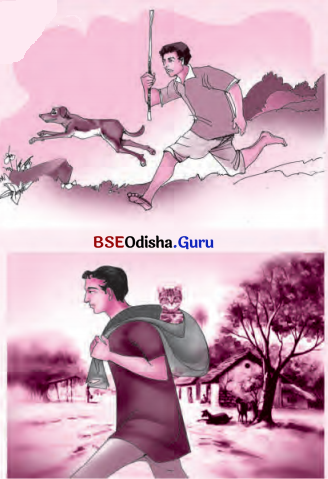
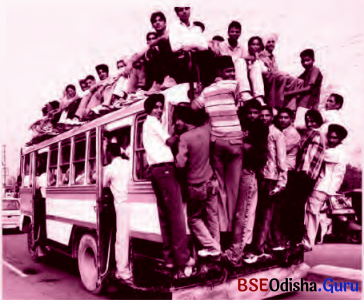
![]()
![]()
![]()
![]()
![]()
![]()
![]()


![]()
![]()






